#why is it always you (napoléon)?
Text
Today I finally decided to check something a friend told me a while ago. It was about Robespierre allegedly supporting and pushing for a full scale invasion of Italy, an idea that came from his younger brother Augustin and Napoléon.
The evidence for such claim is mentioned in Mary Young's biography on Augustin Robespierre. This is what Young has to say about it:

(page 142).
So not only was Carnot - someone who's considered responsible for turning a war of defense into one of conquest by robespierrist historians - unexpectedly against the idea of invading Piedmont, but Maximilien Robespierre, even more unexpectedly, was pushing for it.
And there's more: at page 154 - 155, Young mentions, quoting a work by J. Colin, that the reason why the CSP fell apart was because Robespierre interfered with war affairs to the point of alienating Carnot. While the latter was indeed against invading foreign countries, Robespierre, on the contrary, approved it and wanted it to be accomplished:

So it seems like the story about great advocate of peace, Maximilien Robespierre, is indeed just a story...!
Because of course a historian, whose book presents a foreword by Marisa Linton, wouldn't completely intentionally or unintentionally twist and misunderstand sources, right?
Right!?
Wrong.
The sources which Young uses to support her ideas are from Histoire de la campagne de 1794 en Italie by Gabriel Fabry vol 2, p. 438 and L’Éducation Militaire de Napoléon by J. Colin. Let's give them a quick look.
Fabry's histoire simply reports a CSP decree showing a certain eagerness in wanting to invade Piedmont. The excerpt, as you can see, doesn't include any signature.

(pages 438 - 439.)
Since Young said that Robespierre approved it, one would be inclined to think that it was Maximilien who wrote and signed the decree, with his signature being the first one. Of course the handwriting and signature of a CSP member isn't absolute proof of approval, but I usually see these two things used as arguments to show that a CSP member agreed; even by reputed historians; so I wasn't surprised to see Young making such a bold assumption. I then checked Aulard's Recueil and surprise surprise that decree was written and signed by Carnot only. No trace of Robespierre:

(I underlined in cyan the part similar to what Fabry reported, since Aulard made only a summary of the decree.)
Concerning the fact that Carnot was opposed to Robespierre's - yes, because Colin considers it as such - warmongering plans, the latter mentions a letter dated 26 Thermidor, in which Carnot complains about it:

I happened to find that letter in Correspondance générale de Carnot vol. 4, p. 575 - 576:
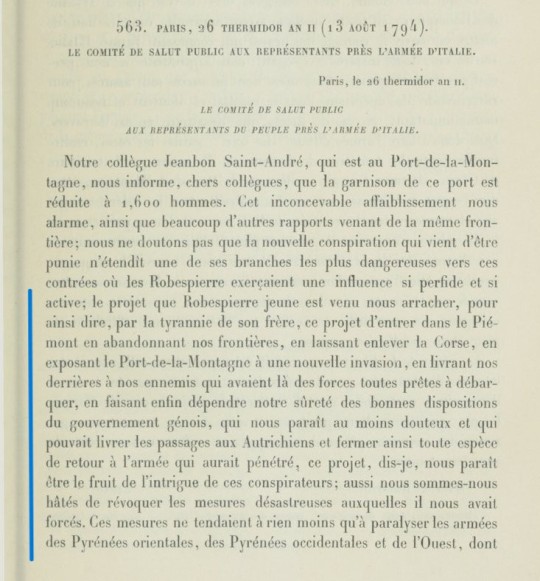
To sum up, it says that the plan comes from the mind of Augustin, but that it was the tyranny of his brother that inspired it.
Now, this is a letter written shortly after the fall of the Robespierrists, it doesn't take much to understand that this is purely thermidorian propaganda, not only because of its content, but also for the wording used. Moreover, it's not a personal letter, in which Carnot rambles with a friend or relative, it's an official one from the Committee of Public Safety.
Saying that Carnot didn't approve the conquest of Piedmont whereas Maximilien Robespierre did - I actually don't know if it was Augustin's idea, but this is not the point right now - is simply wrong since the decree of 19 floréal quoted above has been written and signed exclusively by him.
Thinking that a historian didn't care to double check their sources leading to such a misinformed mess is... truly appalling. This is proof of how one should always double check sources when possible, even if they come from historians we trust or appreciate!
Not that I personally trust or appreciate Young, considering that another of her bizarre claims based on dubious sources almost caused a sort of Thermidor in the community almost one year ago...
EDIT: Mary Young wasn't a historian, but a psychologist, so I did wrong in calling her as such. I do still think that someone of the reputation of Marisa Linton should have done a much better job in reviewing the book.
#frev#french revolution#mary young#augusting robespierre#maximilien robespierre#robespierre#lazare carnot
82 notes
·
View notes
Text


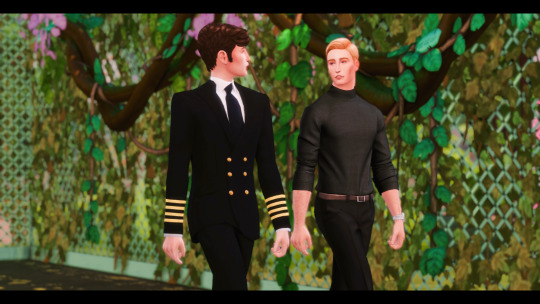
Jean: I know you would have liked to have had a more extensive military education. There is really nothing to stop you, Your Majesty.
Napoléon V: Do you think so?
Jean: Of course, you are the Emperor after all.
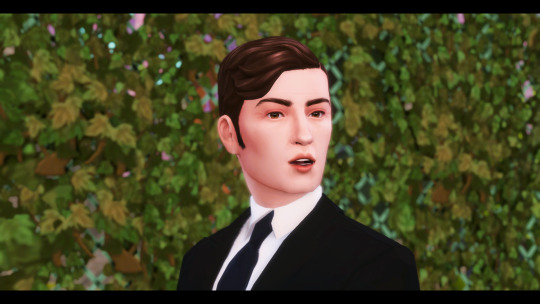
Jean: I always wanted you to have a military education, but your father had other arrangements with the Ecole Polytechnique.
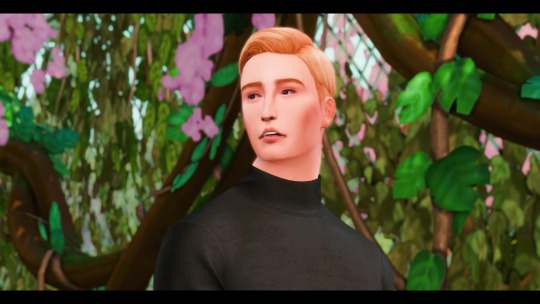
Napoléon V: Arrangements?

Jean: Yes. Did he not tell you anything about this?
Napoléon V: I don't think so.
Jean: The headmaster of the school helped your father with, you know, his coup. It was a way for His late Majesty to thank him.
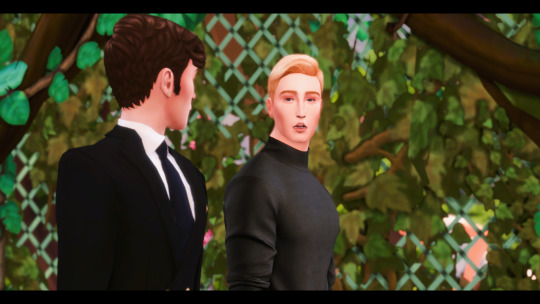
Napoléon V: I see… I didn't understand why he forced me to go to that school. It was famous, of course…
Jean: Indeed.
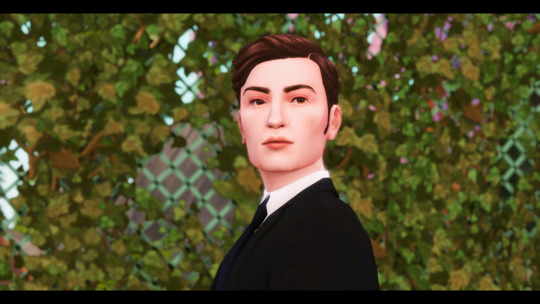
Jean: What do you intend to do about it now?
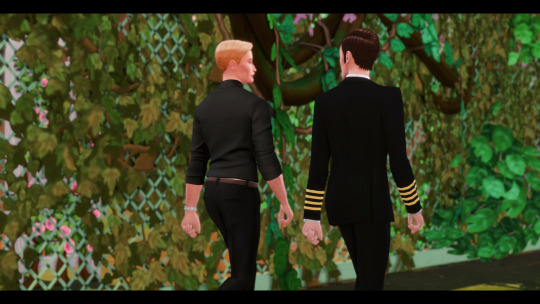
Napoléon V: I'd like to specialise in the French Navy after Polytechnique.
Jean: I'll find out for you. We'll talk about it again soon. You are right to persist in this path.
Napoléon V : Thank you, Jean, for everything.
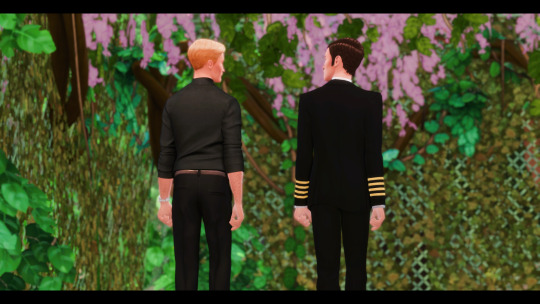
⚜ Le Cabinet Noir | Park of Compiègne, 5 Floréal An 230
Beginning ▬ Previous ▬ Next
⚜ Traduction française
Jean : Je sais que vous auriez souhaité suivre une éducation militaire plus poussée. Rien ne vous en empêche réellement, Votre Majesté.
Napoléon V : Le pensez-vous ?
Jean : Bien sûr, vous êtes l'Empereur après tout.
Jean : J'ai toujours souhaité que vous suiviez une formation militaire, mais votre père avait d'autres arrangements avec l'Ecole Polytechnique.
Napoléon V : Des arrangements ?
Jean : Oui. Ne vous a-t-il rien dit à ce sujet ?
Napoléon V : Je ne crois pas.
Jean : Le directeur de l'école a aidé votre père pour, vous savez, son coup d'Etat. C'était une manière pour feu Sa Majesté de le remercier.
Napoléon V : Je vois... Je ne comprenais pas pourquoi il m'obligeait à aller à cette école. Elle réputée bien sûr...
Jean : En effet.
Jean : Que comptez vous faire désormais à ce propos ?
Napoléon V : J'aimerais me spécialiser dans la marine nationale après Polytechnique.
Jean : Je vais me renseigner pour vous. Nous en reparlerons bientôt. Vous avez raison de persister dans cette voie.
Napoléon V : Merci, Jean, pour tout.
#simparte#gen 2#sim : louis#sim : jean#sims 4 royal#ts4#royal sims#le cabinet noir#sims 4 fr#sims 4#ts4 fr#ts4 royalty#ts4 royal#ts4 royals#ts4 royal simblr#ts4 royal legacy#sims 4 royal story#sims 4 royalty#compiègne
37 notes
·
View notes
Text
As you want me!

The next morning the Emperor got a good beating from me! Because he deserved it! That rascal! I had already thought everything through carefully the evening before. As soon as we arrived at the Tuileries, I sent Camille to the servants' kitchen. "Enjoy a hearty breakfast! Take your time! Listen at the door when you return. If he is still there, wait until he has left." When she had disappeared, I prepared myself. I took off my dress, my bodice, my stockings. Then I undid my chignon and let my hair fall down. The Emperor loves my hair loose. He likes to see the curls bouncing up and down, rhythmically, bouncing faster and faster. The sight alone makes him wild! He loved it! I still had my panthalons on, taking them off in front of him would whet his appetite even more. He loved it!
I looked in the mirror, my complexion was a little pale, as if I had been up all night...so I put a little, very little! rouge on my lips. They shimmered like rose petals, my white teeth gleamed, a mouth ready to kiss! He loved it! I felt the moisture between my legs, Camille had removed my hair, I was fresh as a peach. And just as juicy! He loved it! Then finally I heard the scratching at the door. I opened it and was almost stunned by a cloud of Eau de Cologne. "Bonjour, Madame...bonjour!" The Emperor was always in a terribly good mood in the morning. This was actually how it always was after getting up and completing his morning grooming ritual. Napoléon would joke with his valets while he shaved himself or sat in his bathtub. He loved to listen to the latest Parisian gossip, sang or hummed songs as he got dressed. He drank his lime blossom tea with a smile, because he was looking forward to work; to rule France for a whole day seemed to be the greatest happiness for him. A little lovemaking in the morning rounded off his happiness. And so he was in a very good mood that morning too. He beamed and quickly closed the door behind him. "I have very good news," he began to chatter happily. But I looked at him angrily, put my finger on his mouth and said sternly: "You shut up now!" He looked at me in surprise, but remained silent. "Come on, get over to the bed! And don't mess around!" I put my hand over his mouth and pushed him to the bed, gently pressing him down onto the mattress. He was only wearing a shirt and pants, but even that was too much for me! I took my hand away from his mouth and threatened with my finger: "Not a sound, you rascal!" I pulled his shirt over his head, ruffling his hair and saw him smile. I knew he loved it! I threw away the shirt, opened his fly and fumbled in his pants. Then I took off my panthalons, not taking my eyes off him. The Emperor lay down on the bed, still smiling, more aroused than ever. Finally I mounted him, his hard member was right between my legs, I left it there! He lay back on the pillows, looking at me longingly through his half-closed eyes. I leaned towards his face and licked his lips. I felt him trying to penetrate me, my wet peach twitched and jerked. "You little rascal will listen to me now! Can you really not imagine what a young woman of twenty-two, madly in love, thinks about all day long? What she longs for twenty-four hours a day? What her young body is crying out for? Why she tosses and turns in bed or wanders aimlessly around during the day? Why she keeps trying to distract herself so she doesn't think about what she longs for? Do you have any idea, little rascal, what torture this is?" He moved his hips, he didn't want to wait any longer. I reached between my thighs and grabbed him...
"...but I apologized, Adèle, chérie!" he said humbly. He was still moving his hips and he didn't stop smiling. "You little rascal must learn a lesson...you will never do that to me again! Never again!" I massaged him wildly, he closed his eyes and chuckled. "No, I will never do it again...never...never!" He whimpered like a beaten boy, but with pleasure, it was absolutely wonderful for him! After a while it was no longer enough for the Emperor. He raised his head and looked at me, with furrowed eyebrows and sparkling eyes, he hissed wonderfully aggressively: "Now finally take what you want, Adèle! Take it! Take me!!!"
Afterwards the Emperor was in an even better mood because he had completely disarmed me! I lay in his arms, still trembling from ecstasy, while he started babbling again. "The Empress wants you to attend her evening receptions! That would be excellent, then you can stay overnight and sleep in my bed...on the fur...hmm?...how do you like that?" He nibbled on my ear and stuck his tongue in there too, it tickled. "Oh dear," I sighed, "...I heard that the evenings with the Empress are terribly boring! What am I supposed to do there?" He didn't stop nibbling at my ear. "You can play the harp a little...and if I attend I'll teach you how to play cards. Then under the table I'll put my foot between your thighs...ahhh...you'll like that...playing cards!" The Emperor grabbed my chin, he kissed me roughly and took me for the second time. Before he left me, he said: "The Empress will ask you later whether you can do your duty in the evening. Tell her that you agree!" He paused, opened the door and looked at me again. "Tonight I'll take you harder!" I smiled and nodded slightly. I knew that he had revenge for this morning's "beating". I was looking forward to it.

Later, prepared for everything to come, I went to the Empress's chambers. It was not long before Joséphine called me over. Madame d'Arberg was also there. I was allowed to sit on the taburet again. "Adèle, chérie...", Joséphine began to speak solemnly, "...we, the Emperor and I, would like to ask you to perform your court duties in the evenings too! Would you agree to that, child?" I didn't have to think long, I already had the answers ready. "Your Majesty, I would like to fulfill Your wish with the greatest pleasure, but as a mother of two small children I must point out that my presence with my children is if required absolutely necessary and I will then not be able to fulfill my courtly duties in the evening." My voice sounded even more solemn than hers. The Empress took my hand tenderly. "But of course you have to be considerate of your children! If necessary, you are welcome to be at home with them!" Madame d'Arberg then said to me: "...the Emperor will then increase your remuneration accordingly!" I politely thanked Madame d'Arberg. She exchanged a look with the Empress, curtsied, and then left us alone. Joséphine immediately leaned towards me confidentially. "The Emperor kissed your hand yesterday three times! Everyone saw it. What did he say to you?" Although no one else was there, she whispered. So I followed her example. "He said I should ride at Vaucresson on Sundays rather than at Longchamp." The Empress smiled with delight. "Vaucresson is really more beautiful! I rode there before the Reign of Terror! There is a small pavilion there...a formidable hiding place for couples!" She giggled. But then Joséphine immediately became serious again. "You should ride there, Adèle! I'll tell him about it in passing. Then he'll meet you on a Sunday in Vaucresson...he'll suggest you rest in the little pavilion...with him!" Now I found it difficult to answer. What should I say? The Empress held my hand tightly and kissed it gently, her eyes filled with tears. "...I saw the way he looks at you, Adèle. He desires you! And I can't fight it anymore...There are plots against me! His whole family has started to fight me. They won't rest until they get rid of me, no matter how! I'm in great danger, Adèle...I need your help!" I was deeply touched, immediately stood up and took Aunt Joséphine in my arms. I couldn't think of the right words, I just hugged her...the wife of the man I loved and slept with! What kind of drama had I gotten myself into?

When the Emperor arrived at the Allée des Veuves that evening, he was no longer in a good mood. He was sullen, downright disgusting, I didn't know if his behavior was fake or real. He didn't greet me, he kissed me painfully, bit my tongue lightly, then grabbed me by my neck from behind and pushed me upstairs to the bedroom like a teacher does with his naughty school girl. He pushed me contemptuously onto the bed and said: "Why aren't you naked yet? Take off your clothes!" I was paralyzed with desire! Uhh, that was so good! Confused by what I had just imagined, I frantically took off my dress. He threw off his cloak, stepped out of his escarpins and then threw himself on me! I pressed my face into the pillows and screamed loudly: "...dieu!...DIEU!!!" How I loved this violence, this untamed greed that burst out of him! I clawed my hands in the sheets, the bed creaked beneath us so loudly that I thought it would collapse. "I told you I'd take you harder, "he yelled. "...is it good? Don't you think you deserve a lesson too, you wanton little hussy?" He hurt me, but it was too heavenly. I nodded vigorously and grunted. He became even more violent, having long since lost control, while I stuffed the pillow in my mouth to keep from screaming. He saw it, pulled the pillow away from me and then we both screamed. He collapsed on top of me and realized something that I was infinitely ashamed of - in addition to my large nipples I have another physical peculiarity: sometimes at the climax of lovemaking, a clear, watery fluid squirts out of my vagina. And that's what happened right now at the moment, the love-water shot out of my peach in a high arc! The Emperor saw it with wide eyes, he immediately came to his senses, his hand slid between my legs. I was so horrified that I began to cry. His fingers were wet, he licked them. Then he saw my despair. "Chérie...why are you crying? It's not that bad...on the contrary!" He was very tender now, rocking me to calm me down. "Mon amour...your body has incredible talents...Adèle...you're a goddess in bed!"

I cried hard and wanted to explain to him that I had no control over it, that it would just happen! It had never been as strong as it was that evening. The Emperor kissed my face, he was very tender and loving (I knew now that his rough behavior at lovemaking was not real!) and he assured me again, that my body was only reflecting natural functions. "Love is an exchange of bodily fluids, " he explained to me. "...without our body fluids we couldn't have children!" He kissed the tip of my nose. "...and we two will have beautiful children, you'll see, my Adèle!" I was now comforted. We took off all our clothes, crawled under the sheets and snuggled up close to each other. The Emperor did not want to end the topic yet. He was too fascinated, not to say enthusiastic! "If your love water squirts again,...may I drink it? I once read something about it at the ancient Greeks, they called it the 'water of Aphrodite'...it is supposed to give men strength and beauty!" I had to laugh. "Oh Sire, you already have enough strength and beauty!" He grinned. "A man can never have enough of that...was I too rough just now? I always get the impression that you enjoy it when I take you so hard!" I blinked, moistening my lips and replied shyly questioningly: "Do you find it inappropriate...if I confess that it is so? That I love your rudeness?" The Emperor looked deep into my eyes. "I want to make you happy, Adèle...if I know what makes you happy I will fulfill your wishes, because I love you!" My finger traced the contours of his lips. "...and your wish is my command, Sire...at lovemaking! I will obey with joy, you just have to tell me what pleasures you want!" Napoléon smiled contentedly. "I'll come back to that when I get the chance...has the Empress actually spoken to you?" I nodded. "Yes! I will be present at the evening receptions in the future. The Empress also asked me what you talked to me yesterday in the throne room. I told her that you advised me to go horse riding in Vaucresson. She told me that she knew the forest well, that the Emperor occasionally rides there, that I would definitely meet him, and that there was a cozy pavilion where we could warm up." The Emperor seemed to be completely shocked, he was more than surprised. "That did the Empress tell you?! That we should warm ourselves up in the pavilion?" He jumped out of bed and ran stark naked to the fireplace. "Did she also tell you how we should both warm up in the pavilion?" He folded his arms over his chest and began to walk up and down in front of the fireplace. It looked cute, because his penis was hard again and bobbed merrily with each of his steps. I also stood up, went to the table and poured a large glass of cognac. I took a sip, went to the fireplace and gave it to him. "Of course the Empress didn't say anything like that to me. However, she seemed very unsettled...she's afraid of her own ulterior motives!" I kissed his chest and caressed his aroused manhood. The Emperor looked thoughtfully into the fire. "Joséphine's hatching something...I can feel it!" I followed his gaze into the flames. "She's scared, Sire!"

3 notes
·
View notes
Text
The 2022 Big Book Review
Books read in 2022
Absolutely non-exhaustive. I dropped Goodreads and can’t keep track of anything I don’t write down. Also not counting the children’s books and other quite short stuff I read in 5 minutes so I can tell customers what it’s about.
All in all : it’s a CLASSIC year lads. And I’ll be screaming about Marguerite Yourcenar to everyone forever.
Total (minus comics): 60 books
Total (including everything): 168 books
I organized them loosely, but it won’t be very consistent. Tried to add some comment but this won’t be a literary review
Classics
Mémoires d’Hadrien – So good omg. One of the books ever. Words fail me to say how much this book is amazing. Made me visit the Villa Adriana when I went to Rome. Indirectly responsible for a tendinitis in my left foot. Madeline Miller WISHES she were Yourcenar.
Miss Pettigrew lives for a day - A cute one! Recommended by my sister
La guerre de Troie n’aura pas lieu - found in an old edition in a tiny free library. Very good & depressing
La vie de Monsieur de Molière, Boulgakov - If I had a nickel each time I read a book by a beloved author written by another beloved author, I’ll have two nickels.
Balzac, le roman de sa vie, Zweig – See above
Mille et un fantômes, Dumas - a Russian-doll-type-set of stories, but I have no recollection of them
Lorenzaccio - my sister recommended it to me in 2010. Finally got around to it.
Little House in the Big Woods - Cottagecore before it was cool. Also devoid of the unfortunate racism of the sequel
Le Vicomte de Bragelonne 1 & 2 - I’ll finish it next year for sure
Balzac et la petite tailleuse chinoise - loved the book, hated the ending
Pauline, Dumas - it was okay, I guess
La fin de Satan, Hugo - “Les soleils étaient loin, mais ils brillaient encore”. Hugo always goes HARD
Balzac :
Here’s an extract from a June entry in my diary : « because of a tumblr post, I started reading Le père Goriot, and it’s quite good, which I find irritating ». And now look here we are.
Le père Goriot - So Good. So good I keep jokingly (?) recommending it to customers when they don’t know what book to buy
Le Code des Gens honnêtes - a fun read. Serves as documentation for 19th century life, too
Illusions Perdues - It’s like watching a car crash for 800 pages. In other words, excellent. Also did not expect the ending.
Splendeurs et misères des courtisanes - Come for the story, stay for the harsh commentary on capitalists that Marx wishes he wrote. Horrible, and a masterpiece.
Ferragus - only read it because of the “there’s a secret society in La Comédie Humaine” premice.
La Duchesse de Langeais - funnier once you learn exactly why Balzac wrote it
La Fille aux yeux d’or - Marsay is a dick and I love it
Le Colonel Chabert - SO. GOOD.
La peau de chagrin - This year’s mandatory reading for highschoolers. I pity them.
La Rabouilleuse - Ft the most punchable asshole you’ll ever read in your life
La maison du chat qui pelote – which does not mean, as I initially thought « the house of the cat who plays with a ball of yarn »
Mémoires de deux jeunes mariées - Both very good and quite sad, I couldn’t say why
Le Curé de Tours - Beware the Old Maids, they’ll ruin your life if you don’t treat them well. Pettiness is not a crime, except when it is.
Pathologie de la vie sociale - no recollection of it
History
Les bas-fonds, naissance d’un imaginaire - Very good! Required reading if you love 19th century (and early 20th) literature
La vie quotidienne des religieux au Moyen-âge - Read for documentation purposes
La vie quotidienne des templiers - ditto
La vie quotidienne sous le Directoire - ditto. Quite interesting!
La vie quotidienne des français sous Napoléon, Tulard - I had to hunt it down, but it was worth it. Tulard knows his stuff.
La vie quotidienne à Florence au temps de Dante - Read in Florence, of course.
La vie quotidienne en Italie au temps de Machiavel - To carry on after the previous one.
Yeah, I own quite a lot of these books.
Les jours sans : l’alimentation en temps de guerre - Read it before, but worth it. It’s always good to see history from the side of everyday life.
Pour vous mesdames ! La mode en temps de guerre - Disappointing.
Les Douze heures noires, la nuit à Paris au XIXè siècle - SO GOOD. But I said this before.
Le monde du crime sous Napoléon - Jean Tulard again. Still knows his stuff, but it’s more trivia than a real historical study
Manga
I have to read quite a lot of them for my work. It’s hard, I know. I read the whole series, unless specified
Thermae Romae - still a favourite
Vinland Saga - everyone should read Vinland Saga. Everyone.
Angel Sanctuary 1-20 - Sadly does not hold up today.
Toilet-Bound Hanako-kun - One of my favourite new series. I laud it (and sell it) every chance I can.
Look Back - are you an artist? Read this.
Nonnonbâ, Mizuki Shigeru - a very sweet story. But then I love Mizuki’s work.
Berserk 1-4 - good art, but I’m not sold on the story. I’ll try again, I think.
Spy x Family - For once, a series that is both popular and good enough for me to sell to parents who don’t know anything about manga
The Apothicary’s diaries, 1-5 - Not bad, maybe even good, but I don’t get the hype around it
Atelier of Witch Hat, 10 - read this series. That is all.
Kitchen of Witch Hat - Exactly what I want: short, slice of life stories in a fantasy world, centered around food.
Heaven’s Design team 1 - Not bad.
Beastars 21&22 - Good ending to a great series
DanDaDan - the other of my favourite new series. Highly recommended if you’re not allergic to absurd stuff.
Chouchin X 1&2 - Can’t get behind this, sorry. And yet I loved Tokyo Ghoul.
Comics
Not much to say about this section, I’m afraid.
Three Joker
The Joker : 80 years
I, Joker (yeah, it was a Joker binge)
Batman : Year one
Beasts of Burden
The Ex-People - a nice indie comic ft an immortal horse (among others)
The entire Calvin & Hobbes series - as often
Franco-belgian comics
Les cahiers d’Esther 3 – 7
Journal d’un ingénu 3 - 4
Le Projet Jules Verne
E.C. Jacobs, le rêveur d’apocalypse
La Marque jaune - directly linked to the one above.
Jours de sable - an indie comic about the Dustbowl. Both excellent and depressing
L’arabe du futur 6 - READ IT
Mystery & Thrillers
Messieurs les hommes, S. Antonio - San Antonio is (was?) a big name in the roman de gare genre. The language used is worth bearing the sexism of the MC (in par for the course for a novel written in the 50s, but still)
La Daronne - a very fun read
The Cuckoo’s Call
Career of Evil
Lethal White
Troubled Blood - All of these are good, but I especially loved this one + Career of Evil (bc BÖC)
The Shawshanks Redemption
Du plomb dans la tête – Absolutely bad. Doesn’t help that it was supposed to be a revenge story, and instead I got a badly written pseudo-shocking thriller. Blah.
Which strenghtens my theory that women just write better thrillers than men.
Contemporary, fantasy & YA
Game Changer, N. Shusterman
A Deathly Education – Why don’t I see anything about this series anywhere ? It’s so good.
The Invisible Life of Addie Larue, V. Schwab - aka I think one of the only YA writers worth reading past 25
Legends and Lattes – The best coffeshop slice of life fantasy I had the pleasure of reading. The only one in existence, which is a crying shame
Gideon the Ninth - no need to say anything about it. Tumblr knows it’s a masterpiece
Âge Tendre, C. Beauvais - A sweet read, and cleverly written, too
Les petites reines, C. Beauvais
Vampyria 3, V. Dixen – See my comment about Deathly Education. We’ve got a dystopian YA series where Louis XIV is a vampire and no one talks about this ?
Hogfather
Equal Rites
Mort
The Truth - Yeah, I re-read a bit of Discworld. Whenever I find myself in a reading slump, Pratchett’s always got my back.
Others :
Vers la sobriété heureuse, P. Rabbi
L’humanité en péril 2, Vargas
Tried reading more books about ecology and sobriey but it’s quite depressing.
#books#year in reading#2022 reads#ramblings#next year's gonna be a classic one too I think#still so many Zola Dumas and Hugo books to read
2 notes
·
View notes
Note
It’s honestly impressive that every single timeline coincidence in Les Mis has to do with Napoleon

#tbf I don't think this is a coincidence#I maintain that the entire bricc is literally just about Napoléon#''man'' and ''the infinite'' are Napoléon's diverse best friends who end up getting together at the end#les mis#napoléon#why is it always you (napoléon)?#answers and shitposts#jedi-valjean
80 notes
·
View notes
Text
Screencaps appreciation
Allow me to share some NatM 2 screencaps and gifs (with my comments, of course) :]
Okay, here we go!
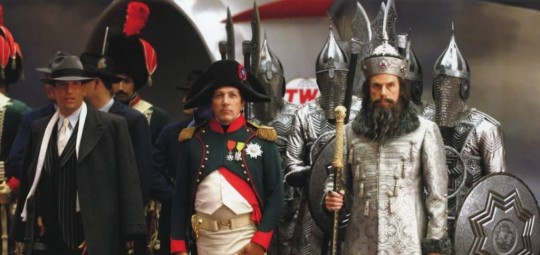
First of all, they look A-W-E-S-O-M-E.
Al, looking at the camera: What are you looking at, punk?!
Napoléon, posing: Google Earth... Always taking pics.
Ivan, with a look like he's gonna murder you in your sleep: *wondering what the dinner will be*
Also, I see a hat behind Nippy...
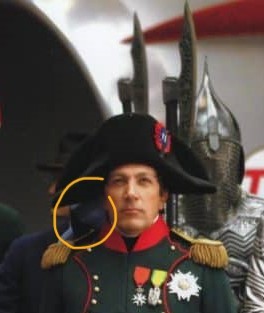
Jim is that you?? No offense, but you’re shorter than the other mobsters, so...
Actually, he may be short YET he knows how to impose himself! You don't wanna mess with him, otherwise he will turn you into a sieve with his Thompson submachine gun.
Just watch this:
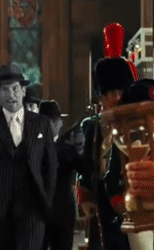
Look how he’s holding his gun. He’s making sure everyone sees it >:]
Oh! I’m so frightened of Jim! He’s bad news!
Since I’m talking about the mobsters, just look at this screencap:
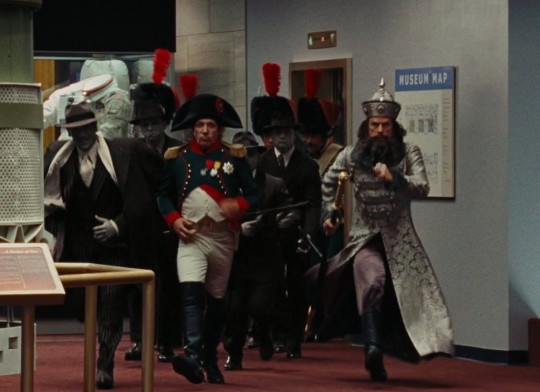
Look at the mobsters and Nippy’s facial expressions
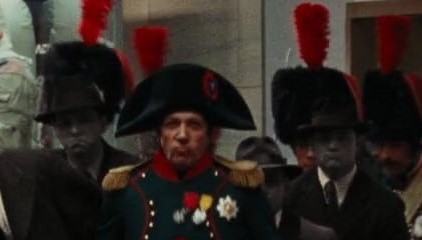
THEY ALL MAKE THE SAME FACE!!! XD
By the way, just admire Ivan’s style! Love it!!
@ slashingdisneypasta made a really good appreciation of it! You can read it here.
Okay, let’s move on.
Spend all the time you need to look carefully at this gif:
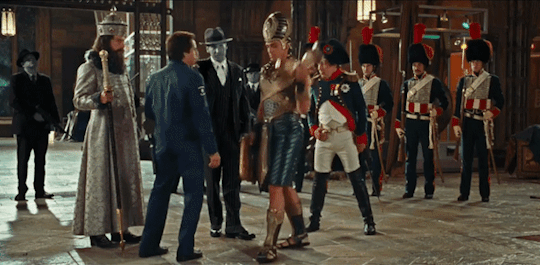
Now, let’s make a review of Ivan, Al and Napoléon’s reaction to Kahmunrah throwing the hourglass like you throw a banana peel into the trash, hoping to aim it from behind while looking at your phone.
Ivan seems to be preparing himself to hear the sound of the glass crashing on the floor. I don’t really know why, but I think that’s cute :]
Al Capone, well... He doesn’t seem to mind at all. He follows the trajectory of the hourglass with his eyes and probably hopes that it shatters into a thousand pieces because he is fed up to the back teeth with recalcitrant little people who speak (or sing) at the top of their voices.
What about Napoléon!!?!! Did he have the reflex to grab the hourglass???!!!!! THAT’S ADORABLE!!! He worries about tiny people. I know he does.
And just because he deserves it, I’ll talk about Napoléon a little bit more.
What about the fact he likes to be close to other men?
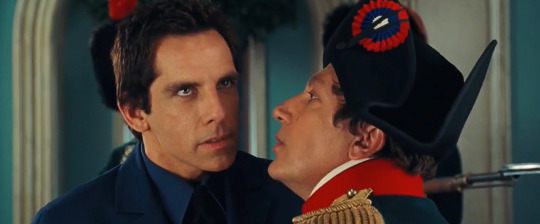
VERY close...
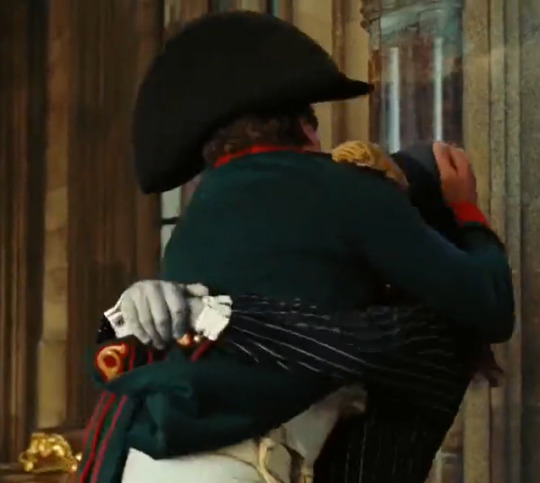
And that’s not all; look at these ones:
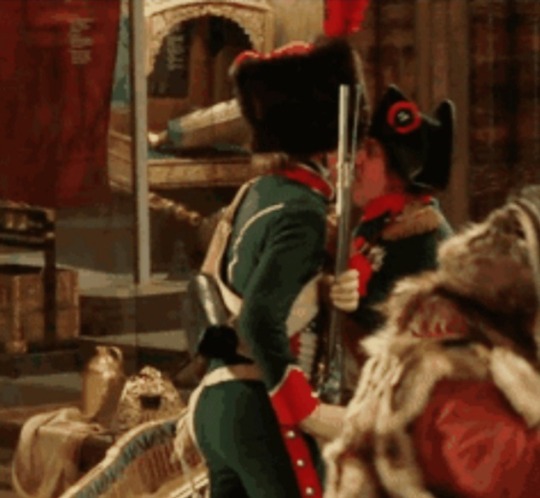
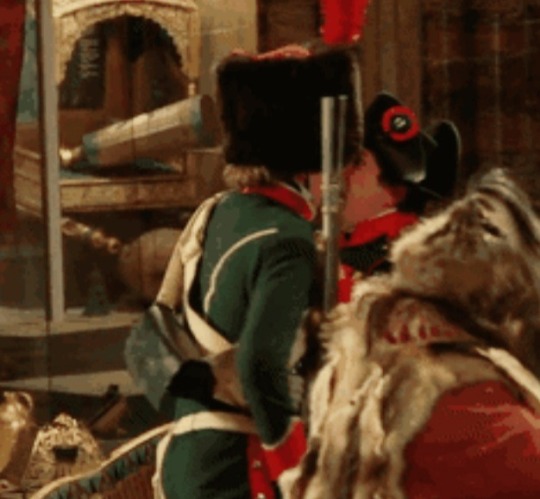
...Nippy kissed one of his soldiers?!? YES!!!
Ok, just kidding... I just chose the right frames from this gif.
#night at the museum#natm#natm 2#battle of the smithsonian#Kahmunrah#Ivan the Awesome#Ivan natm#Napoleon natm#Al Capone natm#Jimmy Consentini (oc)#random post again
85 notes
·
View notes
Text
Anonymous asked: I enjoyed reading your posts about Napoleon’s death and it’s quite timely given its the 200th anniversary of his death this year in May. I was wondering, because you know a lot about military history (your served right? That’s cool to fly combat helicopters) and you live in France but aren’t French, what your take was on Napoleon and how do the French view him? Do they hail him as a hero or do they like others see him like a Hitler or a Stalin? Do you see him as a hero or a villain of history?
5 May 1821 was a memorable date because Napoleon, one of the most iconic figures in world history, died while in bitter exile on a remote island in the South Atlantic Ocean. Napoleon Bonaparte, as you know rose from obscure soldier to a kind of new Caesar, and yet he remains a uniquely controversial figure to this day especially in France. You raise interesting questions about Napoleon and his legacy. If I may reframe your questions in another way. Should we think of him as a flawed but essentially heroic visionary who changed Europe for the better? Or was he simply a military dictator, whose cult of personality and lust for power set a template for the likes of Hitler?
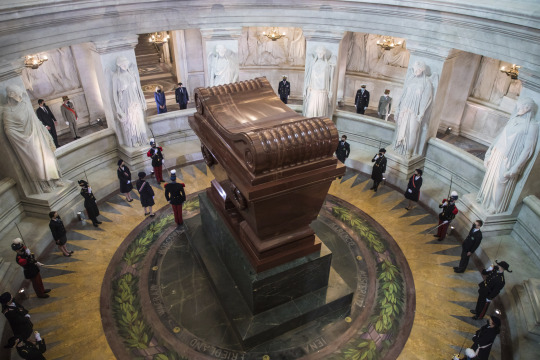
However one chooses to answer this question can we just - to get this out of the way - simply and definitively say that Napoleon was not Hitler. Not even close. No offence intended to you but this is just dumb ahistorical thinking and it’s a lazy lie. This comparison was made by some in the horrid aftermath of the Second World War but only held little currency for only a short time thereafter. Obviously that view didn’t exist before Hitler in the 19th Century and these days I don’t know any serious historian who takes that comparison seriously.
I confess I don’t have a definitive answer if he was a hero or a villain one way or the other because Napoleon has really left a very complicated legacy. It really depends on where you’re coming from.
As a staunch Brit I do take pride in Britain’s victorious war against Napoleonic France - and in a good natured way rubbing it in the noses of French friends at every opportunity I get because it’s in our cultural DNA and it’s bloody good fun (why else would we make Waterloo train station the London terminus of the Eurostar international rail service from its opening in 1994? Or why hang a huge gilded portrait of the Duke of Wellington as the first thing that greets any visitor to the residence of the British ambassador at the British Embassy?). On a personal level I take special pride in knowing my family ancestors did their bit on the battlefield to fight against Napoleon during those tumultuous times. However, as an ex-combat veteran who studied Napoleonic warfare with fan girl enthusiasm, I have huge respect for Napoleon as a brilliant military commander. And to makes things more weird, as a Francophile resident of who loves living and working in France (and my partner is French) I have a grudging but growing regard for Napoleon’s political and cultural legacy, especially when I consider the current dross of political mediocrity on both the political left and the right. So for me it’s a complicated issue how I feel about Napoleon, the man, the soldier, and the political leader.
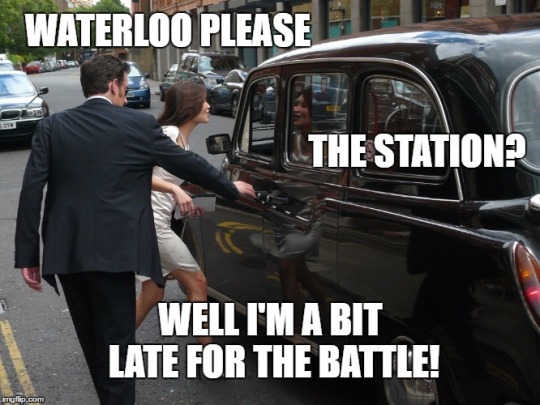
If it’s not so straightforward for me to answer the for/against Napoleon question then it It’s especially true for the French, who even after 200 years, still have fiercely divided opinions about Napoleon and his legacy - but intriguingly, not always in clear cut ways.
I only have to think about my French neighbours in my apartment building to see how divisive Napoleon the man and his legacy is. Over the past year or so of the Covid lockdown we’ve all gotten to know each other better and we help each other. Over the Covid year we’ve gathered in the inner courtyard for a buffet and just lifted each other spirits up.
One of my neighbours, a crusty old ex-general in the army who has an enviable collection of military history books that I steal, liberate, borrow, often discuss military figures in history like Napoleon over our regular games of chess and a glass of wine. He is from very old aristocracy of the ancien regime and whose family suffered at the hands of ‘madame guillotine’ during the French Revolution. They lost everything. He has mixed emotions about Napoleon himself as an old fashioned monarchist. As a military man he naturally admires the man and the military genius but he despises the secularisation that the French Revolution ushered in as well as the rise of the haute bourgeois as middle managers and bureaucrats by the displacement of the aristocracy.
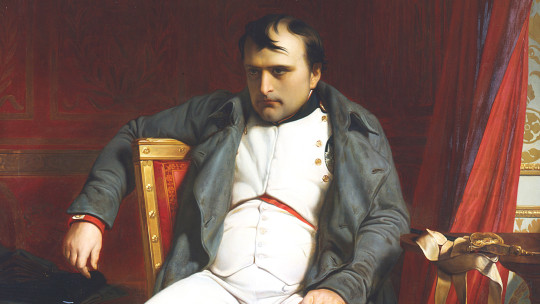
Another retired widowed neighbour I am close to, and with whom I cook with often and discuss art, is an active arts patron and ex-art gallery owner from a very wealthy family that came from the new Napoleonic aristocracy - ie the aristocracy of the Napoleonic era that Napoleon put in place - but she is dismissive of such titles and baubles. She’s a staunch Republican but is happy to concede she is grateful for Napoleon in bringing order out of chaos. She recognises her own ambivalence when she says she dislikes him for reintroducing slavery in the French colonies but also praises him for firmly supporting Paris’s famed Comédie-Française of which she was a past patron.
Another French neighbour, a senior civil servant in the Elysée, is quite dismissive of Napoleon as a war monger but is grudgingly grateful for civil institutions and schools that Napoleon established and which remain in place today.
My other neighbours - whether they be French families or foreign expats like myself - have similarly divisive and complicated attitudes towards Napoleon.

In 2010 an opinion poll in France asked who was the most important man in French history. Napoleon came second, behind General Charles de Gaulle, who led France from exile during the German occupation in World War II and served as a postwar president.
The split in French opinion is closely mirrored in political circles. The divide is generally down political party lines. On the left, there's the 'black legend' of Bonaparte as an ogre. On the right, there is the 'golden legend' of a strong leader who created durable institutions.
Jacques-Olivier Boudon, a history professor at Paris-Sorbonne University and president of the Napoléon Institute, once explained at a talk I attended that French public opinion has always remained deeply divided over Napoleon, with, on the one hand, those who admire the great man, the conqueror, the military leader and, on the other, those who see him as a bloodthirsty tyrant, the gravedigger of the revolution. Politicians in France, Boudon observed, rarely refer to Napoleon for fear of being accused of authoritarian temptations, or not being good Republicans.
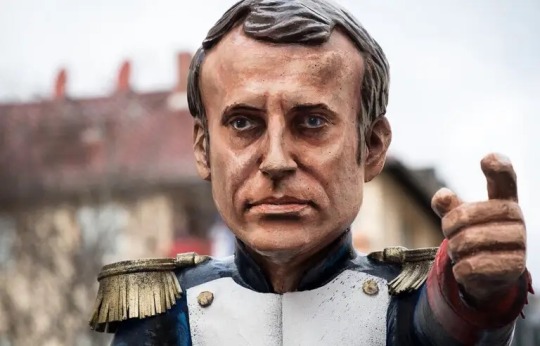
On the left-wing of French politics, former prime minister Lionel Jospin penned a controversial best selling book entitled “the Napoleonic Evil” in which he accused the emperor of “perverting the ideas of the Revolution” and imposing “a form of extreme domination”, “despotism” and “a police state” on the French people. He wrote Napoleon was "an obvious failure" - bad for France and the rest of Europe. When he was booted out into final exile, France was isolated, beaten, occupied, dominated, hated and smaller than before. What's more, Napoleon smothered the forces of emancipation awakened by the French and American revolutions and enabled the survival and restoration of monarchies. Some of the legacies with which Napoleon is credited, including the Civil Code, the comprehensive legal system replacing a hodgepodge of feudal laws, were proposed during the revolution, Jospin argued, though he acknowledges that Napoleon actually delivered them, but up to a point, "He guaranteed some principles of the revolution and, at the same time, changed its course, finished it and betrayed it," For instance, Napoleon reintroduced slavery in French colonies, revived a system that allowed the rich to dodge conscription in the military and did nothing to advance gender equality.
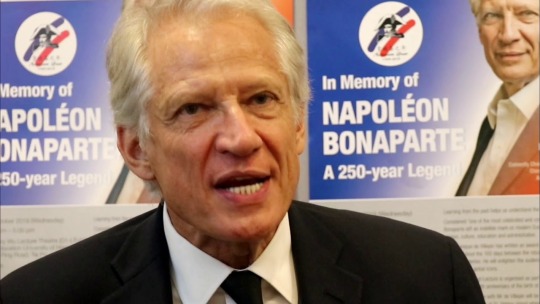
At the other end of the spectrum have been former right-wing prime minister Dominique de Villepin, an aristocrat who was once fancied as a future President, a passionate collector of Napoleonic memorabilia, and author of several works on the subject. As a Napoleonic enthusiast he tells a different story. Napoleon was a saviour of France. If there had been no Napoleon, the Republic would not have survived. Advocates like de Villepin point to Napoleon’s undoubted achievements: the Civil Code, the Council of State, the Bank of France, the National Audit office, a centralised and coherent administrative system, lycées, universities, centres of advanced learning known as école normale, chambers of commerce, the metric system, and an honours system based on merit (which France has to this day). He restored the Catholic faith as the state faith but allowed for the freedom of religion for other faiths including Protestantism and Judaism. These were ambitions unachieved during the chaos of the revolution. As it is, these Napoleonic institutions continue to function and underpin French society. Indeed, many were copied in countries conquered by Napoleon, such as Italy, Germany and Poland, and laid the foundations for the modern state.
Back in 2014, French politicians and institutions in particular were nervous in marking the 200th anniversary of Napoleon's exile. My neighbours and other French friends remember that the commemorations centred around the Chateau de Fontainebleau, the traditional home of the kings of France and was the scene where Napoleon said farewell to the Old Guard in the "White Horse Courtyard" (la cour du Cheval Blanc) at the Palace of Fontainebleau. (The courtyard has since been renamed the "Courtyard of Goodbyes".) By all accounts the occasion was very moving. The 1814 Treaty of Fontainebleau stripped Napoleon of his powers (but not his title as Emperor of the French) and sent him into exile on Elba. The cost of the Fontainebleau "farewell" and scores of related events over those three weekends was shouldered not by the central government in Paris but by the local château, a historic monument and UNESCO World Heritage site, and the town of Fontainebleau.
While the 200th anniversary of the French Revolution that toppled the monarchy and delivered thousands to death by guillotine was officially celebrated in 1989, Napoleonic anniversaries are neither officially marked nor celebrated. For example, over a decade ago, the president and prime minister - at the time, Jacques Chirac and Dominque de Villepin - boycotted a ceremony marking the 200th anniversary of the battle of Austerlitz, Napoleon's greatest military victory. Both men were known admirers of Napoleon and yet political calculation and optics (as media spin doctors say) stopped them from fully honouring Napoleon’s crowning military glory.
Optics is everything. The division of opinion in France is perhaps best reflected in the fact that, in a city not shy of naming squares and streets after historical figures, there is not a single “Boulevard Napoleon” or “Place Napoleon” in Paris. On the streets of Paris, there are just two statues of Napoleon. One stands beneath the clock tower at Les Invalides (a military hospital), the other atop a column in the Place Vendôme. Napoleon's red marble tomb, in a crypt under the Invalides dome, is magnificent, perhaps because his remains were interred there during France's Second Empire, when his nephew, Napoleon III, was on the throne.
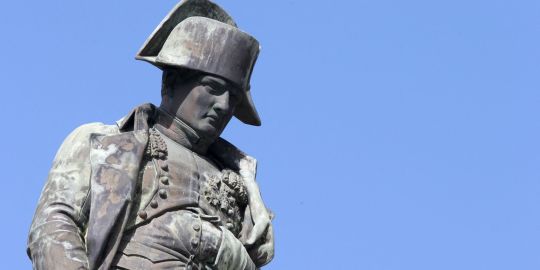
There are no squares, nor places, nor boulevards named for Napoleon but as far as I know there is one narrow street, the rue Bonaparte, running from the Luxembourg Gardens to the River Seine in the old Latin Quarter. And, that, too, is thanks to Napoleon III. For many, and I include myself, it’s a poor return by the city to the man who commissioned some of its most famous monuments, including the Arc de Triomphe and the Pont des Arts over the River Seine.
It's almost as if Napoleon Bonaparte is not part of the national story.
How Napoleon fits into that national story is something historians, French and non-French, have been grappling with ever since Napoleon died. The plain fact is Napoleon divides historians, what precisely he represents is deeply ambiguous and his political character is the subject of heated controversy. It’s hard for historians to sift through archival documents to make informed judgements and still struggle to separate the man from the myth.
One proof of this myth is in his immortality. After Hitler’s death, there was mostly an embarrassed silence; after Stalin’s, little but denunciation. But when Napoleon died on St Helena in 1821, much of Europe and the Americas could not help thinking of itself as a post-Napoleonic generation. His presence haunts the pages of Stendhal and Alfred de Vigny. In a striking and prescient phrase, Chateaubriand prophesied the “despotism of his memory”, a despotism of the fantastical that in many ways made Romanticism possible and that continues to this day.
The raw material for the future Napoleon myth was provided by one of his St Helena confidants, the Comte de las Cases, whose account of conversations with the great man came out shortly after his death and ran in repeated editions throughout the century. De las Cases somehow metamorphosed the erstwhile dictator into a herald of liberty, the emperor into a slayer of dynasties rather than the founder of his own. To the “great man” school of history Napoleon was grist to their mill, and his meteoric rise redefined the meaning of heroism in the modern world.
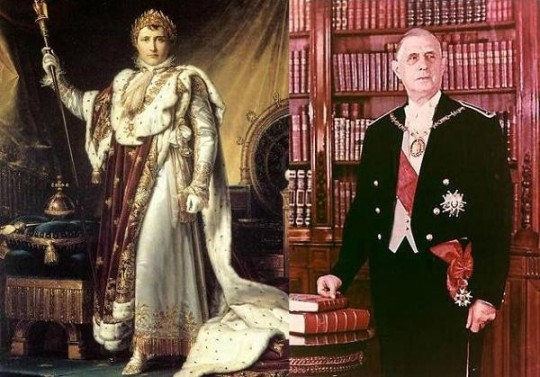
The Marxists, for all their dislike of great men, grappled endlessly with the meaning of the 18th Brumaire; indeed one of France’s most eminent Marxist historians, George Lefebvre, wrote what arguably remains the finest of all biographies of him.
It was on this already vast Napoleon literature, a rich terrain for the scholar of ideas, that the great Dutch historian Pieter Geyl was lecturing in 1940 when he was arrested and sent to Buchenwald. There he composed what became one of the classics of historiography, a seminal book entitled Napoleon: For and Against, which charted how generations of intellectuals had happily served up one Napoleon after another. Like those poor souls who crowded the lunatic asylums of mid-19th century France convinced that they were Napoleon, generations of historians and novelists simply could not get him out of their head.
The debate runs on today no less intensely than in the past. Post-Second World War Marxists would argue that he was not, in fact, revolutionary at all. Eric Hobsbawm, a notable British Marxist historian, argued that ‘Most-perhaps all- of his ideas were anticipated by the Revolution’ and that Napoleon’s sole legacy was to twist the ideals of the French Revolution, and make them ‘more conservative, hierarchical and authoritarian’.
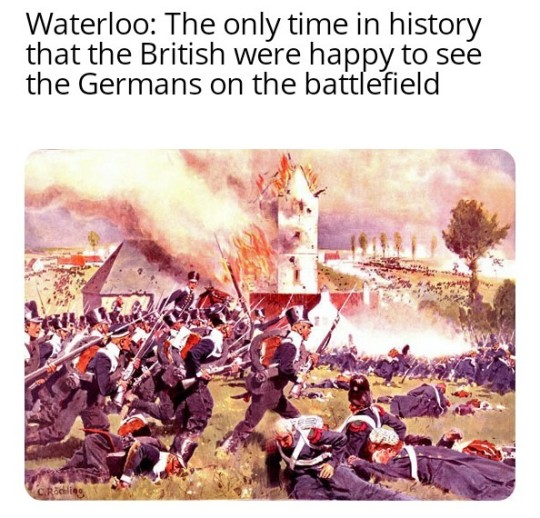
This contrasts deeply with the view William Doyle holds of Napoleon. Doyle described Bonaparte as ‘the Revolution incarnate’ and saw Bonaparte’s humbling of Europe’s other powers, the ‘Ancien Regimes’, as a necessary precondition for the birth of the modern world. Whatever one thinks of Napoleon’s character, his sharp intellect is difficult to deny. Even Paul Schroeder, one of Napoleon’s most scathing critics, who condemned his conduct of foreign policy as a ‘criminal enterprise’ never denied Napoleon’s intellect. Schroder concluded that Bonaparte ‘had an extraordinary capacity for planning, decision making, memory, work, mastery of detail and leadership’. The question of whether Napoleon used his genius for the betterment or the detriment of the world, is the heart of the debate which surrounds him.
France's foremost Napoleonic scholar, Jean Tulard, put forward the thesis that Bonaparte was the architect of modern France. "And I would say also pâtissier [a cake and pastry maker] because of the administrative millefeuille that we inherited." Oddly enough, in North America the multilayered mille-feuille cake is called ‘a napoleon.’ Tulard’s works are essential reading of how French historians have come to tackle the question of Napoleon’s legacy. He takes the view that if Napoleon had not crushed a Royalist rebellion and seized power in 1799, the French monarchy and feudalism would have returned, Tulard has written. "Like Cincinnatus in ancient Rome, Napoleon wanted a dictatorship of public salvation. He gets all the power, and, when the project is finished, he returns to his plough." In the event, the old order was never restored in France. When Louis XVIII became emperor in 1814, he served as a constitutional monarch.
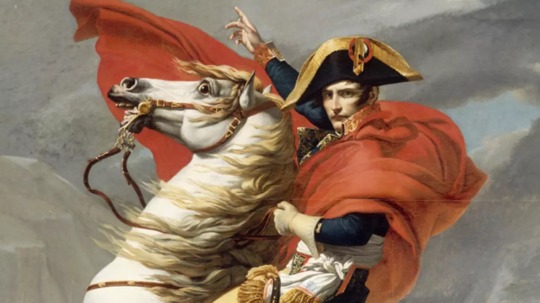
In England, until recently the views on Napoleon have traditionally less charitable and more cynical. Professor Christopher Clark, the notable Cambridge University European historian, has written. "Napoleon was not a French patriot - he was first a Corsican and later an imperial figure, a journey in which he bypassed any deep affiliation with the French nation," Clark believed Napoleon’s relationship with the French Revolution is deeply ambivalent.
Did he stabilise the revolutionary state or shut it down mercilessly? Clark believes Napoleon seems to have done both. Napoleon rejected democracy, he suffocated the representative dimension of politics, and he created a culture of courtly display. A month before crowning himself emperor, Napoleon sought approval for establishing an empire from the French in a plebiscite; 3,572,329 voted in favour, 2,567 against. If that landslide resembles an election in North Korea, well, this was no secret ballot. Each ‘yes’ or ‘no’ was recorded, along with the name and address of the voter. Evidently, an overwhelming majority knew which side their baguette was buttered on.
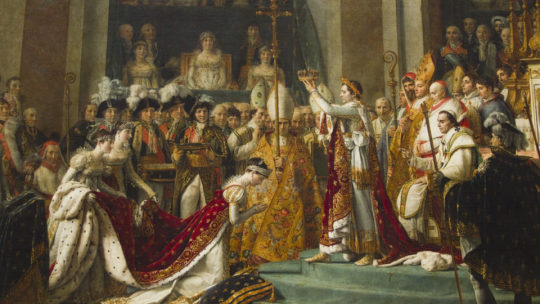
His extravagant coronation in Notre Dame in December 1804 cost 8.5 million francs (€6.5 million or $8.5 million in today's money). He made his brothers, sisters and stepchildren kings, queens, princes and princesses and created a Napoleonic aristocracy numbering 3,500. By any measure, it was a bizarre progression for someone often described as ‘a child of the Revolution.’ By crowning himself emperor, the genuine European kings who surrounded him were not convinced. Always a warrior first, he tried to represent himself as a Caesar, and he wears a Roman toga on the bas-reliefs in his tomb. His coronation crown, a laurel wreath made of gold, sent the same message. His icon, the eagle, was also borrowed from Rome. But Caesar's legitimacy depended on military victories. Ultimately, Napoleon suffered too many defeats.
These days Napoleon the man and his times remain very much in fashion and we are living through something of a new golden age of Napoleonic literature. Those historians who over the past decade or so have had fun denouncing him as the first totalitarian dictator seem to have it all wrong: no angel, to be sure, he ended up doing far more at far less cost than any modern despot. In his widely praised 2014 biography, Napoleon the Great, Andrew Roberts writes: “The ideas that underpin our modern world - meritocracy, equality before the law, property rights, religious toleration, modern secular education, sound finances, and so on - were championed, consolidated, codified and geographically extended by Napoleon. To them he added a rational and efficient local administration, an end to rural banditry, the encouragement of science and the arts, the abolition of feudalism and the greatest codification of laws since the fall of the Roman empire.”
Roberts partly bases his historical judgement on newly released historical documents about Napoleon that were only available in the past decade and has proved to be a boon for all Napoleonic scholars. Newly released 33,000 letters Napoleon wrote that still survive are now used extensively to illustrate the astonishing capacity that Napoleon had for compartmentalising his mind - he laid down the rules for a girls’ boarding school on the eve of the battle of Borodino, for example, and the regulations for Paris’s Comédie-Française while camped in the Kremlin. They also show Napoleon’s extraordinary capacity for micromanaging his empire: he would write to the prefect of Genoa telling him not to allow his mistress into his box at the theatre, and to a corporal of the 13th Line regiment warning him not to drink so much.
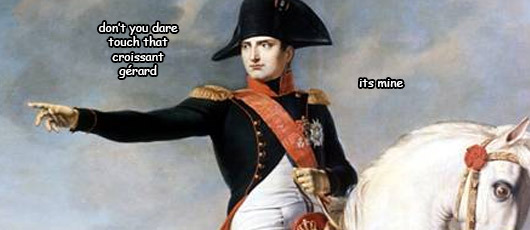
For me to have my own perspective on Napoleon is tough. The problem is that nothing with Napoleon is simple, and almost every aspect of his personality is a maddening paradox. He was a military genius who led disastrous campaigns. He was a liberal progressive who reinstated slavery in the French colonies. And take the French Revolution, which came just before Napoleon’s rise to power, his relationship with the French Revolution is deeply ambivalent. Did he stabilise it or shut it down? I agree with those British and French historians who now believe Napoleon seems to have done both.
On the one hand, Napoleon did bring order to a nation that had been drenched in blood in the years after the Revolution. The French people had endured the crackdown known as the 'Reign of Terror', which saw so many marched to the guillotine, as well as political instability, corruption, riots and general violence. Napoleon’s iron will managed to calm the chaos. But he also rubbished some of the core principles of the Revolution. A nation which had boldly brought down the monarchy had to watch as Napoleon crowned himself Emperor, with more power and pageantry than Louis XVI ever had. He also installed his relatives as royals across Europe, creating a new aristocracy. In the words of French politician and author Lionel Jospin, 'He guaranteed some principles of the Revolution and at the same time, changed its course, finished it and betrayed it.'
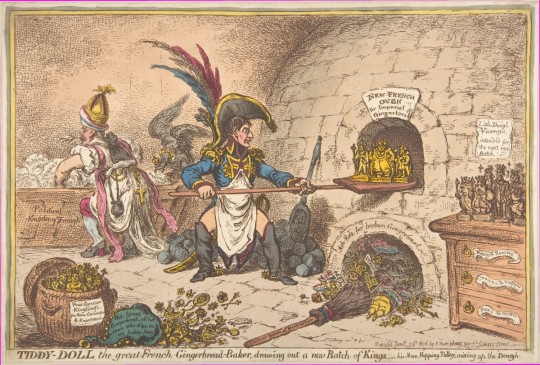
He also had a feared henchman in the form of Joseph Fouché, who ran a secret police network which instilled dread in the population. Napoleon’s spies were everywhere, stifling political opposition. Dozens of newspapers were suppressed or shut down. Books had to be submitted for approval to the Commission of Revision, which sounds like something straight out of George Orwell. Some would argue Hitler and Stalin followed this playbook perfectly.
But here come the contradictions. Napoleon also championed education for all, founding a network of schools. He championed the rights of the Jews. In the territories conquered by Napoleon, laws which kept Jews cooped up in ghettos were abolished. 'I will never accept any proposals that will obligate the Jewish people to leave France,' he once said, 'because to me the Jews are the same as any other citizen in our country.'
He also, crucially, developed the Napoleonic Code, a set of laws which replaced the messy, outdated feudal laws that had been used before. The Napoleonic Code clearly laid out civil laws and due processes, establishing a society based on merit and hard work, rather than privilege. It was rolled out far beyond France, and indisputably helped to modernise Europe. While it certainly had its flaws – women were ignored by its reforms, and were essentially regarded as the property of men – the Napoleonic Code is often brandished as the key evidence for Napoleon’s progressive credentials. In the words of historian Andrew Roberts, author of Napoleon the Great, 'the ideas that underpin our modern world… were championed by Napoleon'.
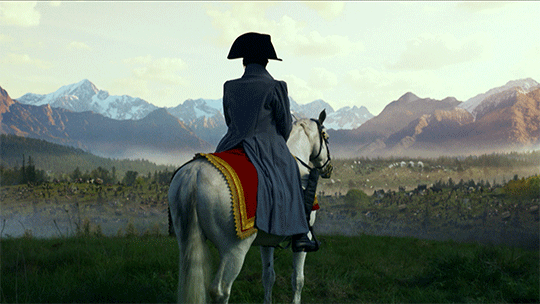
What about Napoleon’s battlefield exploits? If anything earns comparisons with Hitler, it’s Bonaparte’s apparent appetite for conquest. His forces tore down republics across Europe, and plundered works of art, much like the Nazis would later do. A rampant imperialist, Napoleon gleefully grabbed some of the greatest masterpieces of the Renaissance, and allegedly boasted, 'the whole of Rome is in Paris.'
Napoleon has long enjoyed a stellar reputation as a field commander – his capacities as a military strategist, his ability to read a battle, the painstaking detail with which he made sure that he cold muster a larger force than his adversary or took maximum advantage of the lie of the land – these are stuff of the military legend that has built up around him. It is not without its critics, of course, especially among those who have worked intensively on the later imperial campaigns, in the Peninsula, in Russia, or in the final days of the Empire at Waterloo.
Doubts about his judgment, and allegations of rashness, have been raised in the context of some of his victories, too, most notably, perhaps, at Marengo. But overall his reputation remains largely intact, and his military campaigns have been taught in the curricula of military academies from Saint-Cyr to Sandhurst, alongside such great tacticians as Alexander the Great and Hannibal.
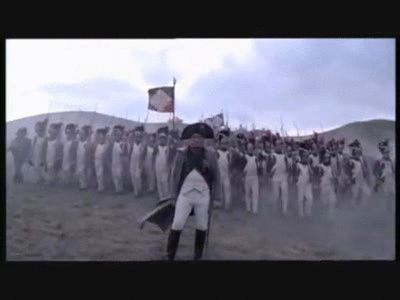
Historians may query his own immodest opinion that his presence on the battlefield was worth an extra forty thousand men to his cause, but it is clear that when he was not present (as he was not for most of the campaign in Spain) the French were wont to struggle. Napoleon understood the value of speed and surprise, but also of structures and loyalties. He reformed the army by introducing the corps system, and he understood military aspirations, rewarding his men with medals and honours; all of which helped ensure that he commanded exceptional levels of personal loyalty from his troops.
Yet, I do find it hard to side with the more staunch defenders of Napoleon who say his reputation as a war monger is to some extent due to British propaganda at the time. They will point out that the Napoleonic Wars, far from being Napoleon’s fault, were just a continuation of previous conflicts that arose thanks to the French Revolution. Napoleon, according to this analysis, inherited a messy situation, and his only real crime was to be very good at defeating enemies on the battlefield. I think that is really pushing things too far. I mean deciding to invade Spain and then Russia were his decisions to invade and conquer.
He was, by any measure, a genius of war. Even his nemesis the Duke of Wellington, when asked who the greatest general of his time was, replied: 'In this age, in past ages, in any age, Napoleon.'
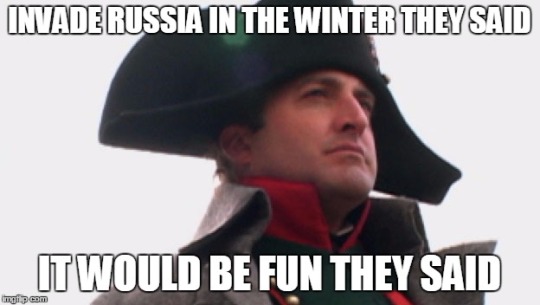
I will qualify all this and agree that Napoleon’s Russian campaign has been rightly held up as a fatal folly which killed so many of his men, but this blunder – epic as it was – should not be compared to Hitler’s wars of evil aggression. Most historians will agree that comparing the two men is horribly flattering to Hitler - a man fuelled by visceral, genocidal hate - and demeaning to Napoleon, who was a product of Enlightenment thinking and left a legacy that in many ways improved Europe.
Napoleon was, of course, no libertarian, and no pluralist. He would tolerate no opposition to his rule, and though it was politicians and civilians who imposed his reforms, the army was never far behind. But comparisons with twentieth-century dictators are well wide of the mark. While he insisted on obedience from those he administered, his ideology was based not on division or hatred, but on administrative efficiency and submission to the law. And the state he believed in remained stubbornly secular.
In Catholic southern Europe, of course, that was not an approach with which it was easy to acquiesce; and disorder, insurgency and partisan attacks can all be counted among the results. But these were principles on which the Emperor would not and could not give ground. If he had beliefs they were not religious or spiritual beliefs, but the secular creed of a man who never forgot that he owed both his military career and his meteoric political rise to the French Revolution, and who never quite abandoned, amidst the monarchical symbolism and the court pomp of the Empire, the republican dreams of his youth. When he claimed, somewhat ambiguously, after the coup of 18 Brumaire that `the Revolution was over’, he almost certainly meant that the principles of 1789 had at last been consummated, and that the continuous cycle of violence of the 1790s could therefore come to an end.
When the Empire was declared in 1804, the wording, again, might seem curious, the French being informed that the `Republic would henceforth be ruled by an Emperor’. Napoleon might be a dictator, but a part at least of him remained a son of the Enlightenment.
The arguments over Napoleon’s status will continue - and that in itself is a testament to the power of one of the most complex figures ever to straddle the world’s stage.
Will the fascination with Napoleon continue for another 200 years?
In France, at least, enthusiasm looks set to diminish. Napoleon and his exploits are scarcely mentioned in French schools anymore. Stéphane Guégan, curator of the Musée d'Orsay in Paris, which, among other First Empire artworks, houses a plaster model of Napoleon dressed as a Roman emperor astride a horse, has described France's fascination with him as ‘a national illness.’ He believes that the people who met him were fascinated by his charm. And today, even the most hostile to Napoleon also face this charm. So there is a difficulty to apprehend the duality of this character. As he wrote, “He was born from the revolution, he extended and finished it, and after 1804 he turns into a despot, a dictator.”
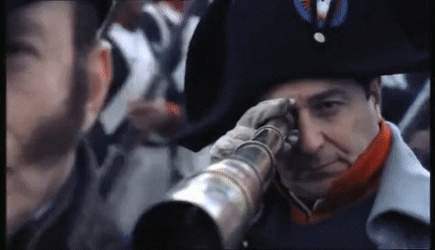
In France, Guégan aptly observes, there is a kind of nostalgia, not for dictatorship but for strong leaders. "Our age is suffering a lack of imagination and political utopia,"
Here I think Guégan is onto something. Napoleon’s stock has always risen or fallen according to the vicissitudes of world events and fortunes of France itself.
In the past, history was the study of great men and women. Today the focus of teaching is on trends, issues and movements. France in 1800 is no longer about Louis XVI and Napoleon Bonaparte. It's about the industrial revolution. Man does not make history. History makes men. Or does it? The study of history makes a mug out of those with such simple ideological driven conceits.
For two hundred years on, the French still cannot agree on whether Napoleon was a hero or a villain as he has swung like a pendulum according to the gravitational pull of historical events and forces.
The question I keep asking of myself and also to French friends with whom I discuss such things is what kind of Napoleon does our generation need?
Thanks for your question.
#question#ask#napoleon#french#french history#history#military history#bonaparte#france#historiography#republic#historians#personal
417 notes
·
View notes
Text
for the 🔥 game @garlandgerard sent me this:

BULLSEYE, this guy's one of my favourite historical blorbos bc i have a huge soft spot for him
for those unfamiliar with this man, he was a younger brother of napoleon bonaparte, and the very first king of the netherlands! to briefly give some context, the netherlands had been the dutch republic for ages, and then after a 1794 revolution (aided by france) it briefly became the 'batavian republic'. however, that very revolution meant that though the republic was technically still independent, french troops were posted all over the country, and the republic had to send more and more money and troops to france and started feeling french repression more and more, because napoleon was busy conquering all of europe and imposing his will everywhere he went. and then in 1806 he decided that actually, enough was enough, and made his younger brother louis napoleon king of the 'kingdom of holland', thereby instating a monarchy in a country that hadn't seen a king since the late sixteenth century or so.
now why would this first king of the netherlands (let's not forget, a FRENCHMAN) be one of my favourite guys of all time, you ask? because louis napoléon bonaparte developed a soft spot for the country and the people he came to rule and took his task seriously. he took lessons under two dutch lawyer-poets to learn the language and soon had himself be called 'lodewijk', the dutch version of 'louis'. he travelled the country not just to arouse sympathy (because he was a foreign king who'd been forced on the people) but also because he genuinely cared. when many people in one particular province caught the 'sweating sickness', he visited patients, had a doctor come over from another province and had the proper medicine be delivered. he assisted during a cholera epidemic that broke out in another village. he tried to solve problems by talking about them and searching for compromise.
the definitive moment that the dutch people really started to accept lodewijk was in 1807, when a transport ship loaded with gunpowder exploded in the middle of the city of leiden, wiping hundreds of houses clean off the face of the earth. the king immediately came to visit the city that very same day, deployed the royal guard to help with cleaning the rubble, had his own court surgeon come over and had the one of his palaces in the hague transformed in a temporary hospital for the victims. he forbade the transport of gunpowder through cities to prevent anything like this from happening in the future and set up a fund for disasters like these to which he donated 30.000 guilders - and this isn't even everything he did to help out with the disaster. you can imagine the dutch populace welcomed him with open arms after that. and then in 1809, when parts of a province flooded to the extent that entire villages just disappeared, the king allegedly helped stack sacks of sand himself. obviously he used the things he did to create some real good propaganda to ingratiate himself with the people, but i think at that point he'd earned it.
now historians thought for a long while that lodewijk was just an extension of napoleon and wasn't really a king in his own right, but lately we've come to have a more nuanced view of him that shows that he did not always follow his elder brother's orders to the letter. the longer he was there, the more lodewijk tried to rule the kingdom of holland his own way, to the displeasure of napoleon, who got mad at him bc he thought lodewijk was prioritising dutch needs over french needs. when lodewijk had to impose the french code civil, he created a new version partly based on existing dutch law. he didn't want to send his brother the number of soldiers he demanded. he didn't want to impose the continental system, which forbade trade with the british, and only acted mildly against smugglers. in the end napoleon basically deposed him in 1810 and made the netherlands a province of france (not so good few years)
obviously lodewijk wasn't perfect - for one he spent a lot of money on himself and lived extravagantly #thefrench - but i think he's a fascinating man who overall had a good heart and good intentions. it's kind of a shame that he's one of the most ignored people in the history of the netherlands because he was 1) french and we don't like to think that our first king was french and 2) his rule was super short and 3) he was imposed and not a member of the current royal family who have been the royals since 1814. i think there's one monument to him in the whole ass country. we celebrated 200 years of monarchy in 2014 because we don't count his reign. that's partly because after 1810 the netherlands became a literal part of france (so napoleon was like. our emperor ig) so you can't really include it and claim continuous monarchy bc of that interruption but it also means that we just ignore lodewijk. i think he deserves better.
#blrobocore#asks#it's so funny how you hit me with one of my faves dead on#next to like. tchaikovsky ig#anyway dutch history literally doesn't give a shit abt this specific era like 1790-1814 is like our country whomst?#like everything until 1806 is too difficult for anyone to understand and then nobody cares abt lodewijk#and we definitely do not talk abt being a part of france#and then it's 1815 and we get belgium added to our country! yippiee!#and then treat it like shit so they leave again after 15 years lmfao#it's so fucking funny tho bc there is literally a park in the city of leiden built in the empty space the explosion left behind#and it's called AFTER SOME OTHER GUY. WHO FOUGHT IN THE EIGHTY YEARS' WAR WHEN LEIDEN WAS BESIEGED. LMFAO#to be fair the relief of the siege is still celebrated today even tho it happened like 400 years ago so it is kind of a big deal but yea#rip to lodewijk napoleon#oh right. let me tag this with#long post
12 notes
·
View notes
Note
Do you think the volturi is the one governing vampire body? Or does Asia, South America and Africa etc all have their own vampire govt?
Oof, this one has been in my inbox for a while because I wasn’t sure where to begin.
Let’s begin with human countries. Why are they, historically, the size they are?
In simple terms - they are as big as they could be while still defending their borders. The Roman Empire expanded to unprecedented size because of their superior technology and military, the Hundred Years’ War were at their core an issue of England being unable to hold on to their territories in France but trying anyway, and up until just a century ago the map of Europe was constantly changing as rulers conquered, lost, and reconquered territories.
Of course, there are countless factors that enter into who is able to hold on to what, such as geography, wealth, the government’s priorities, and so on. My point is that conquerors will conquer as much as they are able to. They are able to expand their territories if they are stronger than their enemies, and able to hold on to their gained territories if they have the military might to fend off invaders.
Alliances are struck when they are mutually beneficial. For an allliance to be beneficial, there has to be something you need, something you stand to gain from your ally that you don’t already have.
The Volturi, per canon, are supreme. They have Jane and Alec who will knock out an army with just their minds, they have Chelsea who will turn an organized group into arguing squabblers who are suddenly feeling awfully loyal to Aro, they have Aro who will know every thought you’ve ever had and as such know every gift you try to hide from him and every conspiracy you might be privy to, they have Marcus who knows your weaknesses, they have Demetri who will hunt down the Volturi’s ever enemy, they have Renata making it impossible to attack their leaders, and they have sheer manpower.
The Volturi form the single most daunting collection of powerful vampires in the history of the world. You can’t keep them off your territory, you can’t even fight them. You’ve lost the instant the Volturi decide to fight you.
Considering their mission, the Volturi had to conquer the world, nothing less. And unlike Alexander the Great, emperor Marcus Aurelius, or Napoléon Buonaparte, they have the military strength to do so.
So, yes, when the Volturi win every single battle, and effortlessly crush anybody who would stand against them, then the world is their kingdom.
Now, it is in one way disingenious to bring this up when talking about the Volturi, since they are not conquerors in the traditional sense. They are barely even a gobernment. A government, at the basest, most vague definition of the term, is a group or a system that governs a community. There is a constitution, of sorts, and a means for determining policies, policies which are then enforced.
The Volturi have a sort of constitution (keep the secret), and policy (the law), which is then enforced, and their community (the supernatural world) is clearly defined.
So in that sense, yes, the Volturi are a government. However, they share none of the other characteristics. They have not formed any institutions (such as education), they do not form or maintain cultural norms (“Volterra is saying black unitards are in this decade!” said Alice never), and they do not collect taxes or tieths (such as “send the most delicious humans to Volterra” or “surrender your gifted vampires to Aro”). Note the diversity of Carlisle’s friends in Breaking Dawn, and the fact that the Volturi bother to use the modern lingua franca, as opposed to, say, Latin. These people are as hands-off as they can get away with being, caring only about the law.
Calling them a government, then, is to use the word in the vaguest, and arguably misleading sense of the term.
However, they do need their law, and by extension their rule to apply globally. There’s no point to it otherwise.
This, in turn, means that for another coven to become the sovereign government of a geographical area, the Volturi would have to allow it.
Now, why would they do that?
They have nothing to gain from an alliance, their power is supreme. If there’s a gift in this coven that Aro wants, well, that’s what Chelsea is for.
This coven would have to do exactly what the Volturi are already doing, and enforce the law. Can Aro be sure they’re even up to it? If they have a gift that means they would actually be able to do it, why not just recruit that gift into the Volturi instead? Why not just enforce it there himself, as he always has, and does with the rest of the world?
(Buffy the Vampire Slayer comes to mind. Per the Buffyverse, at the turn of the century China was a Wild West for demons. With the dawn of modernity in the Western World forcing them into the shadows, demons flocked to China for a last hurrah.
I imagine something very similar would happen in the Twilight world, if there was a region the Volturi did not control. Vampires would flock there, it would be their Las Vegas. Which in turn is bad news for keeping their existence from humans.)
More, this would be a PR disaster.
If the Volturi are divvying up their power, does this mean they’re no longer strong enough to uphold their own law? Did somebody leave their coven?
Speculation and rumors would run wild, and people would be less afraid of them. Fear is the Volturi’s greatest currency. Everyone remembers what they did to the immortal children, to the Southern Wars, to anyone who has stood against them or broken the law. That is what keeps vampires in line, not some general or idealistic respect for the law. If the Volturi jeopardize that, they jeopardize their own authority.
So, no. There is only one ruling vampire coven in the Twilight world.
That being said, territories are still very much a thing, and Aro offered clemency to the Egyptians and to the Romanians if they would only agree to follow his law (they declined). If you want to rule a place and be top dog, then Aro doesn’t care and will happily let you do that, so long as you still respect the Volturi as the ultimate authority and obey the law.
#long post#twilight#twilight history#twilight renaissance#twilight meta#twilight worldbuilding#twilight vampires#volturi#aro
154 notes
·
View notes
Text










P.O.V Louis | Palais des Tuileries, 3 Pluviôse An 230
Beginning ▬ Previous ▬ Next
Following his discussions with Laura and Felipe, Louis confronts his father in the hope of getting answers. Napoléon had once expected all these remarks from his heir, and thinks it is now time for him to grow up.
French translation and transcript below
TRANSCRIPT
(LOUIS) I have... discussed... with many of our subjects, during my first weeks at Polytechnique. To be honest, it seems that many aspects of our family are... unloved. And the values of the empire more generally.
(NAPOLÉON) I'm sorry you had to deal with these people Louis, but it was inevitable. Your mother dans I have always done everything to protect you from this... From now on you are big. You will have to be unyielding. As the English say, "never complain, never explain"
(LOUIS) That's not it Dad...
(NAPOLÉON) This is precisely the point Louis. We will not be able to satisfy everyone, and failing that, we muste satisfy a much greater interest
(LOUIS, sad) So why remove Hortense from the line of succession to the throne ? It's not fair! Or to keep cousin Jérôme away from Francesim ? Also, all my advisors told me not to talk to Felipe... Why ?
(NAPOLÉON) Our ancestors, the kings and emperors of Francesim, are the guardians of the Church. We hold our powers from God on the day of the coronation, and you are the pope's godson. All this implies duties, to respecter the precepts
(LOUIS) The French have voted for the empire, not just God
(NAPOLÉON, with obviousness) Louis.... Democracy is not exercised through republics, votes are juste manipulated numbers. If you stay here for a few days before you go back to school, I'll explain a couple of things to you
FRENCH TRANSLATION
Suite à ses discussions avec Laura et Felipe, Louis confronte son père dans l'espoir d'obtenir des réponses. Napoléon s'attendait un jour à toutes ces remarques de la part de son héritier, et pense qu'il est désormais l'heure de grandir pour lui.
(LOUIS) J'ai... discuté... avec quelques uns de nos sujets, durant mes premières semaines à Polytechnique. Pour être honnête, il semble que de nombreux aspects de notre famille soient... mal aimés. Et les valeurs de l'empire plus généralement
(NAPOLÉON) Je suis désolé que tu aies eu affaire à ces gens Louis, mais c'était inévitable. Ta mère et moi avons toujours tout fait pour te protéger de cela... A partir de maintenant, tu es grand. Tu devras être inflexible. Comme disent les Anglais : "Ne jamais se plaindre, ne jamais expliquer"
(LOUIS) Ce n'est pas ça, papa...
(NAPOLÉON) C'est justement ça, Louis. Nous ne pourrons pas satisfaire tout le monde, et à défaut, nous devons satisfaire un intérêt beaucoup plus grand
(LOUIS, triste) Alors pourquoi écarter Hortense de la succession au trône ? Ce n'est pas juste ! Ou pour éloigner le cousin Jérôme de Francesim ? De plus, tous mes conseillers m'ont dit de ne pas parler à Felipe... Pourquoi ?
(NAPOLÉON) Nos ancêtres, les rois et empereurs de Francesim, sont les gardiens de l'Eglise. Nous tenons nos pouvoirs de Dieu le jour du couronnement, et vous êtes le filleul du pape. Tout ceci implique des devoirs, pour respecter les préceptes
(LOUIS) Les Français ont voté pour l'empire et pas pour Dieu
(NAPOLÉON, avec évidence) Louis.... La démocratie ne s'exerce pas à travers les républiques, les votes sont juste des chiffres manipulés. Si tu restes ici quelques jours avant de retourner à l'école, je t'expliquerai deux ou trois choses
#simparte#gen 1#ts4 royal#ts4#royal simblr#sims 4 royal#sims 4 fr#sim : charles#sim : louis#pov louis#tuileries#ts4 storytelling
30 notes
·
View notes
Text
Against all Odds

When I got home that Saturday morning, the day was not going to be as pleasant as I had hoped - my bleeding had started! Although I was not overjoyed about it, I would have been really happy to spare the Emperor this news and to hope for a child of our love. Well, I said to myself: be patient!
Duchâtel had found it out in a way I could not explain and asked if I would accompany him to the Hôtel Thellusson that evening. My bleeding was never particularly heavy, it only lasted two or three days and was painless. So I said yes to Duchâtel. As his wife, I couldn't always be unkind, and I also wanted to use the opportunity to test the elegance of my new evening-gown. I didn't want to take a bath, though. I still had the Emperor's touches and kisses and the trace of his tongue on my skin, and I wanted to preserve these traces of love for as long as possible. After lunch, Camille announced a visitor...Moira!
I ran down the stairs and in the entrance hall we both happily fell into each other's arms. So long since we've seen each other! I took Moira into my bedroom were we could talk undisturbed. Moira was elegantly dressed - a simple teacher could certainly not afford such an elegant blue velvet promenade dress! A yellow cashmere shawl and a bonnet with deep blue Chinese pheasant feathers! She looked like a countess and it was seen that she was supported by a wealthy man. I whistled a little. "You seem to be doing very well, you look gorgeous!" Moira took off her bonnet and shook her red curls. "Thank you,...yes, I'm fine. But I hear you're also...extraordinarily fine!" She looked at me seriously and I noticed a certain hysteria in her eyes. "How...did you hear something?" I asked confused. Moira took my hand. She hesitated for a moment and then she said: "I know, Adèle!... I know everything!" I swallowed and my smile froze. "What do you know?" Moira's gaze wandered over to the portrait of General Bonaparte, she pointed to him with her chin, her voice was rang and relentless. "I know everything about you and the Emperor!" It was a good thing that I was sitting down because my legs were shaking violently. Moira continued in a low but accusatory voice. "Joseph told me that his brother, Emperor Napoléon, had fallen in love with a beautiful young lady, that this lady is married with a much older man and already had two sons, and that she's at court as lady-in-waiting! The young lady is famous for her extravagant fashion, she is one of the most beautiful women in Paris and the Emperor is crazy in love with her! The name of this lady is unknown, but when I add it all up, the only name that comes to mind is yours. Is that you, Adèle?" I pulled my hand back.
"Yes, it is true!" I said tonelessly. "We are lovers...the Emperor and I!" Moira stood up. "Adèle...have you lost your mind? He will break your heart! He will hurt you so much! What awaits you is a sea of tears! You must come to your senses!" I put my hands in my lap. "Why would I do that? I love him! I love him more than my children's lives...he's the reason I'm alive!" Moira raised her index finger warningly. "No! You can't say things like that, Adèle!" Then Moira's moral demeanor collapsed like a house of cards. She threw her arms around my shoulders as if trying to protect me. "You poor child! How can you be held responsible for this? You are too young! Your love for him has clouded your mind, you don't know what it all means..." I freed myself from her arms and said loudly and clearly: "I love him and I want him, just like he wants me! I'm happy for the first time in my life and I'm not going to let anyone take that away from me! Moira...you're in the same situation as me...you should understand me!" Moira nodded. "I do! And that's why I want to warn you...The Bonapartes are ruthless! They only think of themselves...they cheat! He will cheat on you, Adèle! The Bonapartes know no loyalty...they lie and cheat!" These words sounded like the lines of a bad play. But they explained one thing above all - that Moira was unhappy. She was still not pregnant by Joseph, and yes, it was true that he had other lovers besides her. All of Paris knew it. "I'm not that naive, Moira, don't think that of me! The Emperor can't marry me and I'm probably not his last love affair, but what matters to me is the here and now! I'm experiencing the happiest time of my life...with him! I want to enjoy every minute, every second of it...for as long as it lasts. Life is too short to think only about tomorrow! All I wish is to make him happy, and that my love is unique for him!"
I was able to calm Moira down. I explained to her that I would keep my love affair secretly, and that as long as no one knew about it, no one could harm me. It was also a silent request for her to keep quiet. She finally smiled and we were able to enjoy being together. "I'll ask Camille to bring us pastries and champaigne, and then I'll tell you all the details of how the Emperor spoils me in his bed." Moira laughed and blushed. "You definitely don't!" Of course I had no intention of doing anything like that. But I had a particular question on the subject in mind that I really wanted to address. After Moira had had a few glasses I told her that we ladies-in-waiting naturally also talked about men and their secret desires. But hardly anyone knew what was actually meant by the male fantasy. "Do you know what's behind it?" I asked Moira teasingly. "You only have to read the ancient Romans," she said wisely,"...men either want several girls in bed...or a young man...or they just want to enter through the back door!" My eyes widened and I burst out laughing. "...through the back door?" I knew what that meant, but it seemed too absurd to me. Moira drank her champaigne with pleasure. "That's what all men want...a true phenomenon!" Of course, I did not mention that I had learned about the Emperor's fantasies from Joséphine, but thanks to the ancient Romans, I now knew a little more. I asked Moira to stay overnight. The reception at the Hôtel Thellusson wouldn't last long for me, I would be returning home early and Moira and I could still chat. My new evening dress shone in innocent white. The small wreath of Brussels lace framed my deep cleavage like angel hair. However, my thimbles stood so stiffly upright that they caused a gap between the satin silk and my skin, allowing the close observer to see my breasts. "It's daring," said Moira, "...but gorgeous!" With my high white gloves I wore a white swan's down palatine, a lace fan and a small tiara and matching earrings. No necklace! Camille bent down and gave me the little train of the dress. I took a few steps and turned around. Moira then said: "You are not the most beautiful woman of Paris...but you are close to becoming so, Adèle!"
I did not know exactly who was giving the reception and for what reason. Duchâtel said something about overseas trading companies, shipping lines, professors from the Sorbonne and financiers from the Faubourg. I was listening with only one ear. We drove in the equipage, which I thought was excessive at first, but when we arrived at the Hôtel Thellusson, I had to concede that Duchâtel had made the right choice. We stopped in front of the large imposing city Palais, that had been illuminated for the guests. Carriages with large coats of arms stopped in front of us! I suddenly had the fear of meeting someone from the imperial family. However, my fear was unfounded; it was an unofficial celebration, it was just about seeing and being seen by society. There was champaigne and an orchestra was playing, that was all I needed! Duchâtel and I greeted some people I didn't even know. I smiled and bowed my head slightly on my husband's arm. My tight dress attracted attention and I enjoyed the admiring glances. From young men, from old men, from all men! Then a young officer rushed towards me, I knew him, it was General de Berckheim! "Madame Duchâtel...my saving angel! Finally!" A tall blond hussar officer bowed to me. I looked at him, questioningly. Above my head General de Berckheim asked my husband:"...allow me, Monsieur, to take Madame to the dance floor?! She will be in safe hands with me for the entire evening...if Madame so wishes?"
Yes, I wish so! I looked at Duchâtel and without waiting for his consent, gave him my swan's down palatine, my fan and my ridicule. I put my hand in General de Berckheim's, he bowed over it and kissed it gallantly. I left my husband standing and went to the dance floor.

His name was Sigismond...and he danced like a god! "Madame, do you know there's a secret club in Paris?" I half turned in front of him in the Contré figure. "A secret club, General?" He nodded and took my hand. As he pulled me towards him at the next figure, he said: "...yes, it is the club of *Those unhappily in love with Madame Duchâtel*!" Sigismond smiled charmingly, but I almost stopped in shock. "The club currently consists of three members, Eugène de Beauharnais, General Rapp, and myself, Madame! After this evening the club will probably grow...even more members bemoaning their misfortune of being in love with you, Madame!" I looked up at him and then had to laugh. "Oh, what a prankster you are, General!" I think I blushed, but it was very flattering, I seemed like a desirable woman! In fact, other gentlemen asked me to dance, but I stayed with Sigismond. We were just twirling around in a wonderful waltz when suddenly someone called: "The Emperor!" The orchestra immediately began to play "Vous me quittez pour marcher a là gloire". It was the Emperor's favorite song and every orchestra in Paris knew it. General de Berckheim stopped, kissed my hand, said: "Pardon, Madame...the Emperor!" And he disappeared. A huge commotion ensued, all the gentlemen crowded in front of the large double doors, everyone wanted to see him and be seen. When the Emperor appeared, the crowd shouted "Vive l'Empereur" and everyone applauded. Except for us ladies, because we sank into a deep curtsy.

We only got up when the music started playing a dance song again, but dancing was no longer an option as we didn't have the necessary dance partners. "That's how men are," said an elderly lady, "...as soon as a leader of them appears, we are forgotten!"
The Emperor was surrounded by men and was barely visible. I sat down on the nearest bench and drank a glass of champaigne. Inside I felt triumphant. Why had he come? It didn’t take long and I suddenly spotted Duroc behind me. I acted surprised. "Your Excellency!" He carried his bicorne hat under his arm. "Madame, it would be nice if you would accompany me. The Emperor wishes to speak to you." I put down my glass. "Here? Impossible! You must be mistaken, Your Excellency!" Duroc offered me his arm. "Not here, of course! Accompany me to his carriage, Madame!" I obediently took Duroc's arm, realizing that we were being watched. Duchâtel, who was still holding my accessories saw that the Grand Marshal seemed to be abducting me. And I think Duchâtel didn't know know at that moment whether he should be proud or horrified by what he saw. I smiled silently.
Five minutes later I was sitting in the Emperor's carriage. I leaned back on the soft ermine fur and waited. Duroc disappeared back into the Hôtel Thellusson. The carriage was heated and I was in danger of falling asleep after a short while. Too much champaigne! Then the door opened and my prince appeared! "Well, Madame...I must have disturbed you during your rendezvous with General de Berckheim?" The Emperor's voice sounded deadly serious. I sat up and checked the position of my tiara. "I beg your pardon, Your Majesty! The General was just kind enough to ask me to dance..." His eyes shone in the semi-darkness of the carriage. He threw his hat onto the cushion next to me. Sweet dance music drifted into the carriage from the Palais. The violins sang... "You weren't expecting me. Did I frighten you?" I looked at him bravely. "Sire, you have frightened us all!" The Emperor clucked his tongue. "No.No.No...I didn't frighten everyone! It seemed to me that most of the guests were happy to see me! Of course, not the lovers, whose flirting I disturbed..." I thought I hadn't heard correctly. "Lovers?...what lovers?" The Emperor looked at me expectantly for a while. "Didn't General de Berckheim tell you about his...club?" I dug my hands into the ermine. "So you know about it, Sire? I didn't know until this evening!" My voice was small, shaky. I looked at him, I couldn't believe that he doubted me. And a few seconds later I realized that he didn't. He grinned and grabbed my hand. "I know everything about you, Adèle!" He pulled me onto his knees. "So! You know everything, Sire?" I answered indignantly. "...even that I've been waiting for ten minutes for my Emperor to kiss me?" He pulled me to his chest and before I could protest further, he kissed me. "How beautiful you are, Adèle...I must forbid you from being so beautiful!" I whispered in his ear that I was indisposed (he was not disappointed!). "And then you go to a ball? Other women lie down and take their time..." I layed my head on his cheek. "I would have loved to, but I have obligations as a wife!" He held me tight. "I know. You're a good little wife!" We both smiled. "I just came here to see you, chérie. I told you... I couldn't help it...I had to see you!" He pushed the satin silk covering my cleavage aside. "I need this sight...look...your nipples...two strawberries in whipped cream...so damn delicious!" He kissed my bare breast and made me laugh. We make out wildly for a quarter of an hour, the violins still sounded so sweet from the Palais. I didn't want to stop. He didn't either. "We're going crazy," he said quietly. Then he kissed me even more wildly. That's what you call lovemania. LOVEMANIA!!!
I pushed him away and jumped out of the carriage. I heard the Emperor call my name: "Adèle!" It sounded so longing...
I jumped into Duchâtel's equipage and drove home. At home I found Moira in the drawing room. "How do you look, Adèle?" I collapsed onto the sofa. "The Emperor came to the Hôtel Thellusson...just to see me! I got into his carriage later. We kissed!" Moira sat down next to me. "Kissed? You look like he'd raped you! Where is your cape, your purse, your fan?" I pulled the tiara out of my tangled hair. "Duchâtel has everything. Moira,...Duchâtel saw me leave the ball with the Grand Marshal!" Moira stroked my forehead tenderly. "Then you must think of a good excuse for tomorrow morning. I've been thinking, Adèle. Also prepare yourself for what will happen if Empress Joséphine finds out. She will find out, believe me! Be prepared, Adèle!"
Of course the Emperor did not go crazy and neither did I! The next morning, as I was leaving for my Sunday ride, Duchâtel called me from the dining room. "Adèle, are you going riding? Tell me where you and the Grand Marshal disappeared to yesterday...Did you speak to the Emperor? There were rumors of that at the Hôtel Thellusson..." He was sitting at his petit dejeuner and still had his nightcap on. Tanguy was sitting next to him with his Aja. "I spoke to the Emperor...but only briefly!" I kissed Tanguy on his cheek and smiled at my son. He admired me in my fur toque and my vanilla-colored velvet riding dress. "It was about the Empress...you know I'm very close to her!" Duchâtel was satisfied with this and did not ask any further questions. I turned around and left. In the entrance hall my gaze fell on the mirror. I heard the Emperor's voice "I forbid you to be so beautiful!" I smiled at myself. With the toque I looked like a Russian princess. Moira had already left, I was sorry that she couldn't see me like this.
The weather was great. Sunshine, hoarfrost and bitter cold. Adrian had put a lambskin on Poupette's back as a saddle blanket and had put on the violet-colored bridle with gold fittings. My Poupette also looked somehow Russian with it. I caressed my horse, let Adrian help me into the sidesaddle, and immediately galloped off along the wide avenues of the Bois de Boulogne. There were a few riders on the road, including young dandies in elegant gigs. I wanted to go to Monsieur Borowski's kiosque to enjoy a hot almond liqueur. Monsieur Borowski's kiosque was a popular destination, but was busier in summer than in winter, because it was a garden restaurant. In winter, however, it was a popular destination to enjoy various delicacies. But I was not allowed to enjoy the almond liqueur... At a crossroad I saw a group of uniformed horsemen some distance away. They were not ordinary soldiers, I saw bicornes decorated with white feathers, hussar tchakos, and an officer with a top hat, decorated with coloured plumes, it was Marshal Murat! I already suspected something, I gave my Poupette a light spur and urged her on. I quickly galloped away in the opposite direction. But I couldn't escape! And out of nowhere, suddenly, in the middle of my path, the Grand Marshal stood in front of me with his Westphalian horse. I reined in my horse and made Poupette stop. "I know, Adèle, that you are now wondering what this is all about. But just do as I do...I don't ask questions. I follow the Emperor's wishes and I'm never wrong with that!" Duroc guided his horse next to Poupette and asked me to follow him. I didn't know what to say and remained silent. We rode through a bare deciduous forest of tall oaks and beeches. At the edge of a pine forest I saw the Emperor on his Spanish white horse. But without his entourage, he was all alone! When he saw me he turned his horse in my direction. I immediately noticed how wonderful he looked. He was wearing a silver-gray velvet coat trimmed with Canadian wolf. He also wore his famous bicorn hat. He was smiling. Everytime I see him, I feel how much I love him. I can't describe it in words, even if I were a poet, I couldn't...

Duroc get off his horse, came to me and helped me dismount. He led me over the damp leaves of the forest soil to the Emperor. "Sire, I'm bringing you Madame Duchâtel!" I dropped into a graceful curtsy. Napoléon leaned his stallion towards me and before I knew it, Duroc had lifted me up, the Emperor grabbed me and placed me on his saddle in front of him. He picked up the reins, turned his horse and trotted with me into the spruce forest. Here the air was even colder, the forest soil was soft and muffled the hoofbeats of the horse, which the Emperor now made walk more slowly. I looked at him, his face was pale, his eyes steely and alert, he was freshly shaven and smelled faintly of his beloved Eau de Cologne. He said nothing. I touched his cheek lightly with my lips, I could feel the magic of the moment. We rode deeper into the forest, it was so quiet, so ice cold, so mystical. It was as it had been for thousands of years in this forest. And we were just observers in this silence. Deeply moved, I leaned against him, his arms tightened around me, we both felt our connection with the beauty of nature, any spoken word would have been superfluous. It was one of the most beautiful, magical moments we experienced together. And I firmly believe that it was our love that gave us this moment. The Emperor finally touched my chin and lifted it up to kiss me. "Thank you, Adèle!" He said tenderly. "...and I thank You, Sire!" We rode slowly back through the enchanted forest. Before the Emperor let me slide from his horse down into Duroc's arms, he whispered to me: "Tomorrow morning, at nine!" I nodded vigorously. And then he galloped away.
Duroc and I stayed behind. "Why are you crying, Adèle?" I clenched my hands into little fists and pounded on Duroc's chest. "...because I love him so much!"
.
3 notes
·
View notes
Text
You know how someone’s home says a lot about them as a person? That definitely applies to Lucifer Morningstar.
At first glance, his penthouse may just seem like a luxurious bachelor pad, a testament to his wealth and style, but like the person living there, there is so much more to it.
The space is open and wide, with a high ceiling and no doors. Sure, a lot of space is always nice, especially if you host a lot of parties, and why would you need doors when you live alone? But it also makes a stark contrast to Hell, with its narrow corridors and thousands and thousands of doors and small rooms—chambers of torture whose doors may not be locked but nevertheless hold the souls in there captured. So, no doors. Not even the entrance is an actual door, and it isn’t locked. Only rooms bleeding into each other in one, big open space (much like in Heaven).
And he lives in a penthouse, high above the ground, as close to the sun (and Heaven) and as far from Hell you can get. With the big panorama windows, he can always see the sky—the actual sky, not the clouds of smog and ash that made for a ‘sky’ in Hell. But the sky that holds the stars he made. The sun he so carefully formed, because he knew what it would mean to the humans, and what the humans meant to his dad. There are big windows because Lucifer loves the light. He loves it when the morning glow covers the naked bodies in his bed with gold. Loves to lie in the afternoon sun and bask in the warmth like a fat cat. Loves the sunset, and the colours of twilight, and the twinkling city lights, like low-hung stars in the night. He can’t really see the actual stars, his stars, but when he steps out on the big, open balcony for a smoke and looks out at the night sky, he feels the threads, thin and old as they may be, between the suns and their Creator. Out there, on his balcony, there is nearly nothing but sky and light, and he loves that. Even more so after spending eons in darkness.
And then there’s the interior. There’s no kitchen and no dining area, because who would eat with him? Who would want his company outside of his bed (or his couch, or on the desk, the banister, the floor, on the piano)?
When he does have people over for something other than sex, they’re offered a drink (if they deserve it) of one of his carefully selected top-shelf spirits, displayed on his impressive bar, a monument to the tastes he loves.
And in the middle of the penthouse, at the heart of his home, we have the piano, the best money can buy. Because besides light, whiskey, and sex, Lucifer loves music. When he came to Earth in 2011 and he heard the sound of music, it was the first time he’d heard music like that since Heaven – this is what he says in 3x11 at least, but we know he’s visited Earth before 2011, and I think he, at one point, says he taught all the greats? Either way, he’d been deprived of good music in Hell, and upon hearing the piano, his fingers immediately itched for the keys and the sweet melodies he could draw from them. So, when he bought Lux and the penthouse, he bought two pianos. One for his club, for entertaining, because he does love an audience, and one for his home, for playing whatever his mood inspires.
He doesn’t have much furniture, but he does have an extensive library, filled with original copies he’s been gifted from authors, poets and thinkers. Unlike in many other luxurious LA homes where the books on the shelves are curated by interior designers, Lucifer’s books are not there for display, or to make him appear intellectual. They’re there because he treasures them, because they’re humans’ intriguing and complex minds materialised. Tokens from encounters with interesting and inspiring people, such as William Shakespeare and Sigmund Freud. Likewise, the gift from Napoléon Bonaparte is not one he keeps because of its aesthetic, but because, even 200 years later, he’s still amazed that someone would like him enough to give him a gift. Many of the humans he’s met over time may be dead now, but their souls live on in his library, in their gifts, in the music he plays, in his ancient Assyrian walls. (He did meet some of them again in Hell, but it’s not the same. They were not the same. They never are.)
So, essentially, Lucifer’s penthouse, Lucifer’s home, is everything Hell wasn’t. Where Hell was dark and cramped, his new home is light and open. Instead of living in the abyss, he now practically lives in the sky. In Hell, there was nothing but pain and torture, so his penthouse is built for nothing but wine, women, and song—for pleasure. Decorated with fine taste (Italian leather and silk sheets) and memories of great humans (Assyrian carvings and gifted books).
But while his home is ideal for parties and one-night stands, it’s also built for a rather lonely existence—someone who doesn’t need a table big enough for a family dinner, or a kitchen to cook for or with friends in. His home has everything he was deprived of for millennia—music, flavour, pleasure—except for one thing: Love.
Until that changes, it’s just him, his whiskey, his piano, and his books.
#just some thoughts that came to my mind while researching for my current wip#lucifer#lucifer morningstar#reflections#lucifer reflections#lucifer’s penthouse#esmealux
68 notes
·
View notes
Note
are there any sources that say how lafayette reacted to the death of washington and his other friends from america??
Hello Anon,
yes, we do know La Fayette’s reaction - pretty exactly actually. George Washington died on December 14, 1799 and La Fayette wrote to Washington’s widow, Martha Washington, on February 28, 1800. The letter is today hold by the Digital Collection from The Washington Library.


Dearest Madam
My Heart Has for So Long a time and So throughly Been known to You, that I Need Not, Nor indeed Could I Express the feelings Which Over Whelm it—While the world is Mourning, and Mankind weeping Over the irreparable Loss, What Must it Be to You, My dear Madam, the object of His Love, the Companion of His Life, the partner of His Sentiments, the Happy witness to All His private and public virtues? What Must it Be to me, Who from My Youth Have Been Blessed with His paternal Adoption, and Who Ever Have deserved it By the Most filial Affection for Him and for You, Who United in Every thing were particularly So in Your kindness to me? - Continue, I beseech you, to Honour me with this Maternal Predilection, the more necessary to me, as in you, dearest Madam, I Both Love and Revere What Remains of My Respected and Beloved General - My Mind is so wed to introduce Him in every thought, every Sentiment, every Concern of Mine that I Hardly Can Believe that, While I am Living, He Has left us, Nor Could I forgive Myself No to Have personally received His Last Blessing. Had I Not the Remembrance of the Advice By Which You know He Has Repeatedly differed My Departure for America - the Circumstances are Coming on Which Had appeared to Him to proper- for Our Meeting - But Alas, in this World We Can No More Meet! I would think it for me a Sacred and Staeing[sic] Duty to Go Over and Mingle My Tears With Yours, Had I not Lately Reentered My Native Country Where, although I Live in perfect Retirement, and With not Have Any thing to do With public affairs, I am Bound to forward the Business of My friends, Several of Whom, Who followed me in 1792, are to the paine[sic] of Being Restored to their Homes and families - I owe it also to My Creditors and Children to pick up the Remains of My fortune - My Son, not Less a partaker in My Grief than in My Obligations and Gratitude, Has the Honour to write to you, and would Have Gone to Mount Vernon, Had Not the Continuation of the War engaged Him in the Military Senite where He expects to Be Soon employed - But we Both Live in the Hope to present You Again, dearest Madam, the personal Homage of our Respectful Love; and everlasting Regrets Shall ever Make us worthy of the parental affection which from the Greatest and Best of Men, which from You, Dear Madam, we Both Had the Happiness to experience - My Wife, With a Mourning, affectionate Heart, joins in My Sentiments, and as well as the Rest of My family Beg to Be More Respectfully, tenderly Remembered to You - Be pleased to let me Hear from You as often as You Can - permit me to Hold with You the Correspondence I Had with My Beloved General and think often of that adoptive Son of His who with dutiful Respect, and warm, Grateful, filial affection Has the Honour to be
dear Madam
Your obedient Servant and friend
Lafayette
Martha Washington replied to La Fayette on October 31, 1800:
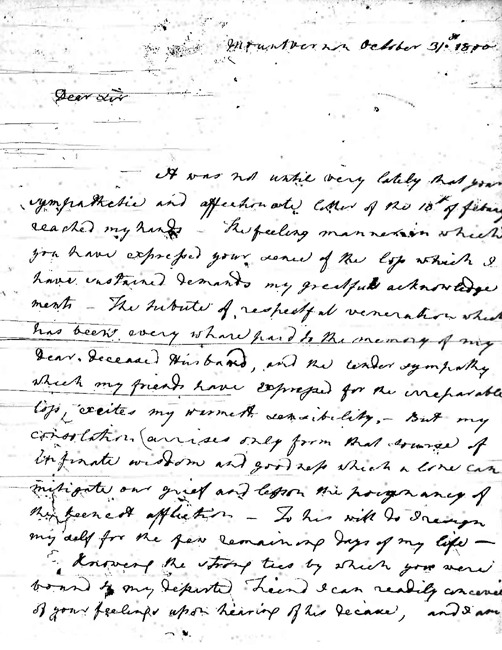
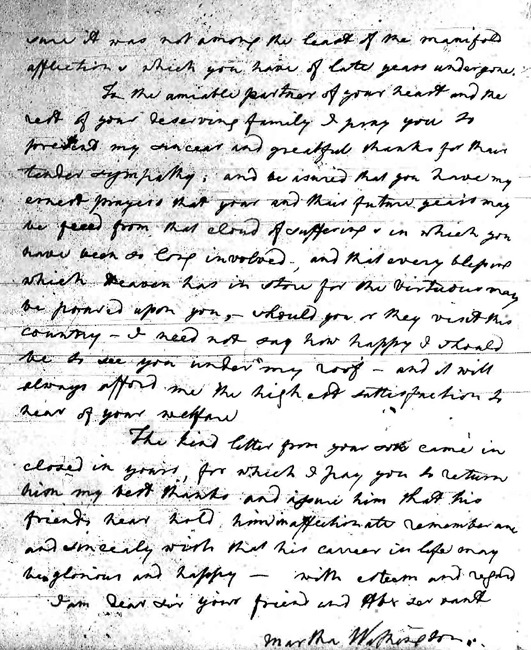
Mount Vernon October 31st 1800
Dear Sir
It was not until very lately that your sympathetic and affectionate letter of the 18th of febary reached my hands - The feeling manner in which you have expressed your sense of the loss which I have sustained demands my greatful acknowledgement. The tribute of respectful veneration which has been every where paid to the memory of my dear deceased Husband, and the tender sympathy which my friends have expressed for the irreparable loss, excites my warmest sensibility, -- But my consolation arises only from that source of infinite wisdom and good help which alone can mitigate our grief and lessen the poignancy of the keenest affliction -- To his will do I resign my self for the few remaining days of my life - Knowing the strong ties by which you were bound to my departed Friend I can readily conceive of your feeling upon hearing of his decease, and I am sure it was not among the least of the manifold afflictions which you have of late years undergone.
To the amiable partner of your heart and the rest of your deserving family I pray you to have my sincear and greatful thanks for their tender sympathy; and be isured that you have my ernest prayers that your and their future years may be freed from that cloud of suffering in which you have been so long involved -, and that every blessing which heaven has in store for the virtuous may be showered upon you,- should you or they visit this country - I need not say how happy I should be to see you under my roof - and it will always afford me the highest satisfaction to hear of your welfare
The kind letter from your son came in closed in yours, for which I pray you to return him my best thanks and issure him that his friends hear hold him in affectionate rememberance and sincerely wish that his career in life may be glorious and happy - with esteem and regard
Im dear sir your friend and obedient(?) servant.
Martha Washington
There is something special about this letter. Martha received at least 55 letters of condolences that we know of, more than 40 of the people who wrote her received a reply - but most of these replies were not written by her but by others, Tobias Lear for example, in her name. La Fayette’s was one of fife identified persons who received a reply written by herself. Martha also send La Fayette two pistols, that Washington bequeathed to the Marquis in his will. Washington wrote in his will:
“To General de la Fayette I give a pair of finely wrought steel Pistols, taken from the enemy in the Revolutionary War.”
La Fayette’s son, Georges Washington de La Fayette, also wrote Martha. He enclosed his letters in the letter written by his father. Beside these letters, there is also an earlier account that illustrates La Fayette’s thoughts about Washington’s demise. Shortly before La Fayette sailed for France in 1784 after his third visit to the United States, Washington wrote him the following on December 8, 1784:
“In the moment of our separation upon the road as I travelled, & every hour since—I felt all that love, respect & attachment for you, with which length of years, close connexion & your merits, have inspired me. I often asked myself, as our Carriages distended, whether that was the last sight, I ever should have of you? And tho’ I wished to say no—my fears answered yes. I called to mind the days of my youth, & found they had long since fled to return no more; that I was now descending the hill, I had been 52 years climbing—& that tho’ I was blessed with a good constitution, I was of a short lived family—and might soon expect to be entombed in the dreary mansions of my father’s—These things darkened the shades & gave a gloom to the picture, consequently to my prospects of seeing you again: but I will not repine—I have had my day.”
To that La Fayette replied on December 21, 1784:
“I Have Received Your Affectionate letter Of the 8th inst., and from the known Sentiments of My Heart to You, You will Easely guess what My feelings Have Been in perusing the tender Expressions of Your friendship—No, my Beloved General, our late parting was Not By Any Means a last interview—My whole Soul Revolts at the idea—and Could I Harbour it an instant, indeed, my dear General, it would make me Miserable (…)”
On February 8, 1800, France held an official funeral service for George Washington. Everybody expected La Fayette to give a eulogy to Washington but that did not happen. More so, La Fayette was explicitly excluded from the funeral. Why? Because Napoléon Bonaparte, who had just risen to power, did not felt like it and because he was a bit petty.
As with regard to his other friends in America, there is not as much documentation that I know of. Washington wrote to La Fayette on October 20, 1782 that John Laurens had died.
“Poor Laurens is no more—He fell in a trifling skirmish in South Carolina, attempting to prevent the Enemy from plundering the Country of Rice (…)”
I am sure La Fayette was saddened by his friends death, but I have never seen him mentioning it. Moving on to Hamilton, who died on July 12, 1804, La Fayette wrote Thomas Jefferson on October 8, 1804 that:
“The Deplorable fate of My friend Hamilton Has deeply Afflicted me—I am Sure that whatever Have Been the differences of parties, you Have Ever Been Sensible of His Merits, and Now feel for His Loss.”
He further wrote to George Washington Parke Custis after Hamilton’s death that:
“Hamilton was to me, my dear Sir, more than friend, he was a brother. We were both very young, when associated with our common father; our friendship, formed in days of peril and glory, suffered no diminution from time: with Tilghman and with Laurens, I was upon terms the most affectionate; but with Hamilton, my relations were brotherly.”
Another close friend of La Fayette, Thomas Jefferson, died on July 4, 1826 and La Fayette discussed his death in a letter to James Monroe on November 28, 1826. I sadly have no full access to this letter so I can only tell you that Jefferson’s death was discussed in the letter, but not what La Fayette actually wrote.
I hope you have/had an awesome day!
#marquis de lafayette#lafayette#general lafayette#george washington#martha washington#thomas jefferson#james monroe#alexander hamilton#georges washington de lafayette#adrienne de noailles#adrienne de lafayette#letters#handwriting#1799#1800#1804#1826#ask me anything#dear anon#george washington park custis#history#death#mourning#french history#french revolution#american history#american revolution#1784#napoléon
63 notes
·
View notes
Text
Madame Pontmercy (Marius's mom) has SO much symbolism wrought about her existence, and Marius is getting just as wrapped up as Cosette in a totally different way.
#look she died in 1815#Cosette was conceived in 1815#I'm not saying I like it but —#shitposting through les mis#why is it always you (napoléon)#waterloo#les mis#marius
42 notes
·
View notes
Text
i am absolutely outraged
i am angry. i am mad. i am furious. i am absolutely outraged.
spoilers for about all ikevamp eng routes below (jean arthur napoléon isaac theo (maybe? idk i didn’t play his route) mozart euh everyone but vincent and leonardo)
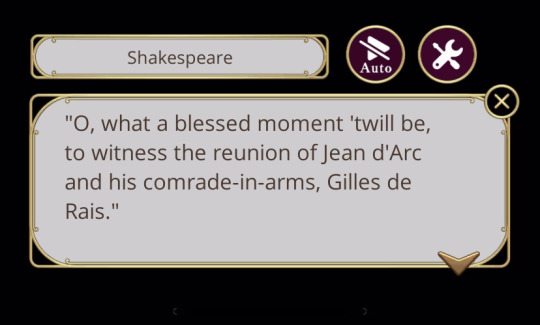
I SWEAR. I SWEAR WHAT THE FUCK AM I PLAYING JUST WHO DO YOU THINK I AM, GAME ? i said nothing for napoléon’s route. nothing for mozart’s. i started wincing at isaac’s. i was a bit angry in theo’s (about what i read at least). i started being really angry in arthur’s. i. am. mad. absolutely. revolted. for just how long. are they. going. to. keep. bringing back. their past rivals. how. long. and who brings them back? shakespeare (im sorry i meant like they are brought back by vlad (i think?? idk im just like a dead fish in a human body i dont get anything) for an obsucre reason related to will but i wouldn’t know bc tbh i don't get anything this man says). every. single. time.
am i william biased? absolutely. do i love william? you bet i do, take my money and my kidneys (both) will, i don’t care. but. please. please i am begging. william. can’t. be. the. bad guy. in every single story. william can’t be the bad guy in every single story because 1) it gets really really repetitive really really fast 2) i think his motive is terrible like what??? the man?? just wants to write plays??? and is going to ruin every. single. route. for that?? i don’t buy, cybird. maybe we’ll discover his real motives in his route and i sure hope we will.
3) in. every single. route. there is.
1) william shakespeare ruining everything for his stupid plays (i’m trying really hard not to start writing an essay about why i think this motive is stupid)
2) their ancient rival is brought back
3) they want revenge/to see the main character
4) they kidnapp mc who is certainely desperate because they think the suitor doesn’t love them.... or sth like that
4.1) bonus point if the place they’re going to is a theater
5) the suitor arrives like MC!!!
6) mc is surprised because they are absolutely clueless about literally everything 7) it’s moral time! probably going like ‘i’ve always admired you.... and respected you....’
8) they forgive each other, someone is surely crying, suitor is like ‘mc are you hurt?????????’ then they go back to the mansion and they have sex.
if this happens in jean’s route.
i will be mad. (threat level: maximal)
i am sorry for any english mistakes btw today i had an english oral exam and it was terrible. terrible terrible i just straight up forgot the entirety of my third part i was sitting like??? i had a third part but i forgot literally anything i’ve ever said in it what is happening to me??
also it was not in every single route. it was happening exactly exactly like this in mozart’s, arthur’s, isaac’s, there was the ancient rival brought up in napoléon’s (and in theo’s but i didn’t read it so i don’t know what happens exactly), and kidnapping at the theater + moral in leonardo’s as well.
#ikemen vampire#ikevamp jean#ikevamp jsp#i am really mad#like#absolutely outraged#i really did not think things would happen again in jean's route#but i guess#i hate the idea of mc kidnapped by ancient rival + moral about forgiveness and admiration#déjà que.#je n'ai rien dit sur jean d'arc#qui aurait très bien pu etre jeanne d'arc mais bon bref standards hétéocentrés etc#bon voila quand comte a mentionné gilles de rais je me suis dit non#quand même pas#ils ne vont pas oser#mais si#gilles de rais kidnappe mc et fais la morale à jean je jure j'ouvre plus jamais le jeu#jusqu'à ce que la route de shakespeare sorte#hinhin qui va foutre la merde maintenant
68 notes
·
View notes
Text
Anonymous asked: I loved your fantastic account of the battle of Waterloo and how each nation came to define the rest of the century for all the European countries in different ways. However what are your thoughts about the battle itself? Did Wellington win it or did Napoleon lose it? What were the turning points that you think determined the fate of the battle?
Thank you for reading and liking my previous post on Waterloo. I did heavily lean into studying ancient classical warfare when I was studying Classics but I only got into Napoleonic warfare because of a father who was (and still remains) big Napoleonic warfare military enthusiast. Through his keen eyes as a former serving military man, I also looked at the battle as a soldier might as well putting on my academic critical thinking cap. It’s a popular parlour game not just in Sandhurst but also in the officers’ mess (where those regiments actually fought at Waterloo) and around dinner tables - in my experience anyway.
I’ve always seen such speculative and counterfactual questions as an amusing diversion. I’ve never seriously looked at the detail until I came to France and unexpectedly interacted with Napoleonic scholars as well as soldiers (the cultured and historically well read ones at least) that forced me to think more about it. I’ve always been of the ‘if the Prussians hadn’t arrived in time to save Wellington’ school; and this was always enough to get me by in any conversation.
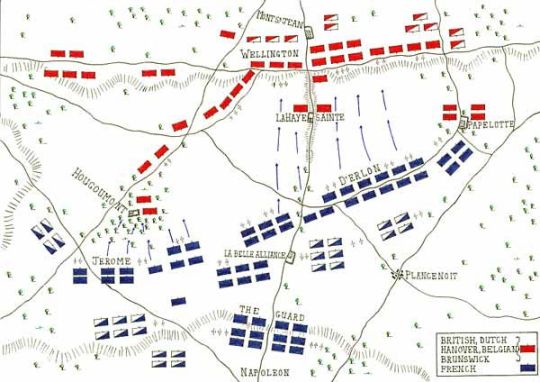
But my vanity was stung by interacting with one of my downstairs neighbours, a high decorated retired army general, with whom I played a weekly game of chess over a glass of wine during the Covid lockdown in Paris. He didn’t spare me as he knew so much detail about the battle. But a typical failing of French thinking is to pontificate around generalities rather than specific reasons. So for him it came down to pooh-poohing the generalship of Wellington (the rain saved him) and lauding the emperor (he had haemorrhoids and thus a bad day at the office). So rain and haemorrhoids were the decisive factors in determining the outcome of the battle of Waterloo.
It was clear I had to raise my game. So I’ve been reading more when I could.
I had recently finished reading a wonderful book ‘The Longest Afternoon: The 400 Men Who Decided the Battle of Waterloo’ by the Cambridge historian Brendan Simms. The book came out in 2015 but it’s been lying on my shelf for these past few years until I actually took this slim book to read on my one of my business trips.
The idea behind this short book is so superbly useful. It places to one side the huge, cinematic panorama of history and instead concentrates on one particular farmhouse, on one particular day: 18 June 1815. History is vivified, lifts itself off the page and into the mind, when a historian of Brendan Simm’s immense stature zooms in on the details - and here the details are compelling.

For the course of one day, 400 soldiers, wet, cold, in some cases hungover, who had bivouacked for the night in an abandoned farmhouse at La Haye Sainte, near a crucially strategic crossroads, found themselves staring down the massed barrels of Napoleon’s vanguard – and held them off. On June 18, 1815, Wellington established his position and sent one battalion and part of a second to the farmhouse under the command of Major Baring. Napoléon’s initial attack was a direct assault that surrounded the house and came near to breaking Wellington’s line; but it held, and the legendary charge of two British heavy cavalry brigades drove back the French.
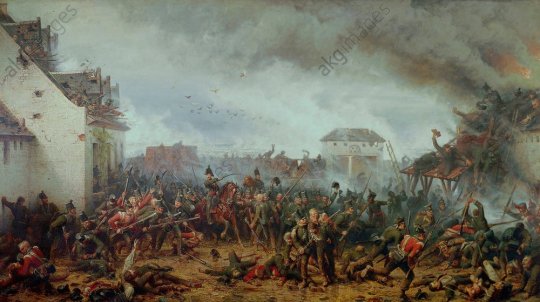
This is a detailed account of the defence of La Haye Sainte, a walled stone farmhouse forward of Wellington’s centre. Its defenders were the King’s German Legion, which (despite the British army’s penchant for oddball names) was genuinely German. Britain harboured many German expatriates who detested Napoléon, a number augmented in 1803 when he occupied Hanover and disbanded its army. That very year two ambitious officers recruited the first members of the King’s German Legion, which grew into a corps of some 14,000 men and served with distinction at Copenhagen, Walcheren and in Spain before its apotheosis at Waterloo.
Ordered to capture the farmhouse, Marshal Michel Ney - commanding Napoléon’s left wing - obeyed but became preoccupied with his famously unsuccessful cavalry attack. Reminded of the order two hours later, he dispatched infantry that reached the house and set it on fire. The men inside controlled the blaze and continued to fight until Ney took personal charge of a furious assault that succeeded only when the defenders ran out of ammunition and withdrew, having held out for six hours. Had they not defended it so stoutly and if the farm had fallen any sooner then Napoleon would have been able to get at Wellington’s troops before his Prussian reinforcements arrived, and in all likelihood Waterloo would have been a French victory instead; it would now be the name of a train station in Paris rather than London.

I doubt there is a definitive answer to this question which is why certain people love arguing about it because it’s so open ended in terms of cause and effect. You can pick on any episodic event and hail that as the decisive turning point. It’s one reason why we are so fortunate to have so many well researched history books on the battle of Waterloo to replenish the issues for a newer generation to argue with past generations.
If I were to go beyond the ‘if the Prussians hadn’t arrived to save Wellington’ line then I would point to ten decisive turning points which in themselves might not have changed the outcome but taken together certainly influenced the final outcome of one of the most important and iconic battles in history.

Napoleon gives Marshal Davout a desk job
6 June 1815 – All commanders need a good chief of staff to ensure that their intentions are translated into clear orders. Unfortunately for Napoleon – as what is arguably one of the most decisive battles in European history loomed – his trusted chief of staff, Marshal Berthier, was no longer available. Berthier had sworn an oath of loyalty to Louis XVIII – and then fallen to his death from a window – so the job was given to Marshal Soult.
Soult was an experienced field commander but he was certainly no Berthier. Napoleon’s two main field commanders were also far from ideal. Emmanuel Grouchy had little experience of independent command. Michel Ney’s heroic command of the French rear-guard during the retreat from Moscow led Napoleon to dub him “the bravest of the brave”, but by 1815 he was clearly burnt out.
Worse still, when on 6 June Napoleon ordered his generals to assemble with their troops on the Belgian border he chose to leave behind Louis-Nicolas Davout, his ‘Iron Marshal’, as minister of war. The emperor needed someone loyal to oversee affairs at home but the decision not to take with him the ablest general at his disposal would deprive him of the one commander who might have made a difference.
Constant Rebecque ignores orders
15 June – In June 1815 Napoleon assembled 120,000 men on the Belgian border. Opposing him were 115,000 Prussians under Field Marshal Blücher and an allied force of about 93,000 men under Wellington. Faced with such odds, Napoleon’s best chance of victory was to get his army between his two enemies and defeat one before turning on the other. On 15 June his army crossed the frontier at Charleroi and headed straight for the gap between the two allied armies.
Wellington was taken completely by surprise: “Napoleon has humbugged me” he said. Uncertain what Napoleon’s intentions were, he ordered his army to concentrate around Nivelles, over 12 miles away from the Prussian position at Ligny. This would have left the two allied armies dangerously separated but fortunately for Wellington, a staff officer in the Dutch army, Baron Constant Rebecque, understood what was actually needed. He disregarded Wellington’s order and instead sent a force to occupy the key crossroads of Quatre Bras, much nearer to the Prussians.

D’Erlon misses the show
16 June – Two battles were fought on 16 June. While Marshal Ney took on Wellington’s army as it hurriedly tried to concentrate around Quatre Bras, Napoleon led the main French force against the Prussians at Ligny. Blücher’s inexperienced Prussians were given a severe mauling but despite this they managed to fall back in relatively good order.
This was partly due to a disastrous mix-up on the part of the French. Confusion over orders saw General D’Erlon’s corps instructed to leave Ney’s army at Quatre Bras and join the fighting at Ligny only to be recalled as soon as they got there. The result was that 16,000 Frenchmen who could have intervened decisively actually took part in neither battle.
Blücher stays in touch
17 June – Wellington succeeded in beating back Ney at Quatre Bras but Blücher’s defeat left the British general with a large French army on his eastern flank. He was forced to fall back northwards towards Brussels. The Prussians were retreating as well. Normally a retreating army tries to withdraw along its lines of communication (ie the route back to its base). Had the Prussians done this they would have headed eastwards. The two allied armies would then have been even further apart and Wellington would have been overwhelmed. But instead of doing that, the Prussians retreated northwards towards Wavre. It was to be a crucial move. The two allied armies stayed in contact and on 17 June Wellington was able to fall back to the ridge at Mont St Jean, and prepare to make a stand there until Blücher’s Prussians could come to his aid.

The weather takes a hand
17 June – The night before the battle was marked by a thunderstorm of biblical proportions. Rain lashed down, turning roads into quagmires and trampled fields into seas of mud.
It was a night of tremendous rain and cloudbursts. Wellington said that even in the monsoons in India, he’d never known rain like it. To wake up cold and damp, wet and terrified, then you have this slaughter in a very small space. By evening there were over 200,000 men struggling to kill each other within four square miles.
Private Wheeler of the 51st Regiment later wrote: “The ground was too wet to lie down… the water ran in streams from the cuffs of our Jackets… We had one consolation, we knew that the enemy were in the same plight.” Wheeler was right of course – the rain would inconvenience all three armies, not least the Prussians as they struggled along narrow country lanes to link up with Wellington.
It’s often said that Napoleon delayed starting the battle in order to allow the ground to dry out but the chief cause of the delay was probably the need to allow his units, many of whom had bivouacked some distance away, to take up their allotted places. Napoleon enjoyed a considerable advantage in artillery at Waterloo but this was lessened by the fact that the mud made it difficult to move his guns around and that cannonballs, normally designed to bounce along until they hit something, or someone, often disappeared harmlessly into the soggy ground.
Macdonnell closes the gates
11:30am, 18 June – On 18 June the two armies prepared to do battle. Most of Wellington’s troops were sheltered from enemy fire on the reverse slope of the Mont St Jean ridge. The position was protected by three important outposts: a group of farms to the left, the farm of La Haye Sainte in front and the farmhouse of Hougoumont to the right.
At about 11.30am the French launched their first attack – an assault on Hougoumont. This soon developed into a battle within a battle as the French threw in ever more men in a bid to capture the vital chateau. They nearly succeeded: led by a giant officer nicknamed ‘the Smasher’, a group of French soldiers worked their way round to the rear of the chateau, forced open its north gate and burst inside.
James Macdonnell, the garrison commander, acted quickly. He gathered a group of men and they heaved the gate shut again. The French inside the chateau were then hunted down and killed. Only a young drummer boy was spared. Hougoumont was to remain in allied hands all day and Wellington later commented that the entire result of the battle depended on the closing of those gates.

Ney loses his head after his cavalry founders
1.30pm – The infantry of D’Erlon’s corps finally saw action as they attacked the left wing of Wellington’s army. As they reached the crest of the ridge they were met by the infantry of Sir Thomas Picton’s division. Picton, a foul-mouthed Welshman who rode into battle in a civilian coat and round-brimmed hat, was shot dead but his men stopped the French, who were then driven back by Wellington’s cavalry.
The next major French attack was very different. Ney unleashed his cavalry in a mass frontal attack, and thousands of Napoleon’s famous cuirassiers – big men in steel breastplates riding big horses – thundered up the hill. But Wellington’s infantry stayed calm. Forming squares, they presented in all directions a hedge of bayonets that no horse could be made to charge.
Ney needed to call the cavalry off or support them with infantry but he lost his head and threw more horsemen into the fray. When he abandoned these fruitless attacks, Wellington’s line was still unbroken, two hours had been wasted, and the Prussians were arriving in force.

The Prussians arrive
4.30pm – Blücher had promised to come to Wellington’s aid, and kept his word. Napoleon had detached nearly a third of his army under Grouchy to prevent the Prussians joining up with Wellington but Grouchy failed to do this and, by mid-afternoon, the first Prussian units were in action on the battlefield.
At about 4.30pm they launched their first attack upon the key village of Plancenoit near the rear of Napoleon’s main position. This savage battle would rage for over three hours. Faced with this, Napoleon was forced to send many of his remaining reserves to shore up his position – leaving him with precious few troops to exploit any success his troops might enjoy against Wellington.

Napoleon says no, and von Zeithen turns back
6.30pm – At about 6.30pm the French captured La Haye Sainte. Posting artillery and skirmishers around the farm, they unleashed a storm of shot, shell and musketry into Wellington’s exposed centre. The regiments there suffered horrendous casualties, but Wellington’s line held – just.
Ney asked for reinforcements to press home his advantage but Napoleon refused. Instead he sent troops to recapture Plancenoit which had just fallen to the Prussians. Von Zeiten’s Prussian I Corps arrived on the scene. These much-needed reinforcements were set to join Wellington when a Prussian aide de camp rode up with an order from Blücher instructing them to head south and support his troops at Plancenoit. Von Zeiten obeyed. Realising that Von Zeiten’s troops were desperately needed on the ridge, Baron von Müffling, Wellington’s Prussian liaison officer, galloped after Von Zeiten and pleaded with him to ignore this new order and stick to the original plan. The Prussian general turned back and took his place on Wellington’s left, enabling the duke to shift troops over to reinforce his crumbling centre. The crisis had passed.
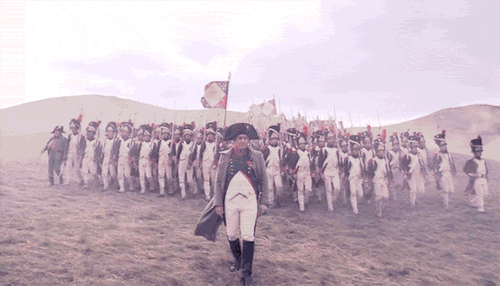
Napoleon’s last roll of the dice ends in panic
7.30pm – With Plancenoit back in French hands the stage was set for the final act in the drama. At about 7.30pm Napoleon unleashed his elite imperial guard in a last desperate bid for victory. But it was too late – they were hopelessly outnumbered and Wellington was ready for them. His own troops had been sheltering from the French fire by lying down but when the two large columns of French guardsmen reached the crest of the ridge Wellington ordered his own guards to stand up. One British guardsman describes the scene: “Whether it was (our) sudden appearance so near to them, or the tremendously heavy fire we threw into them but La Garde, who had never previously failed in an attack, suddenly stopped.”
Meanwhile Sir John Colborne of the 52nd Light Infantry wheeled his regiment round to attack the flank of the first French column while General Chasse ordered his Dutch and Belgian troops forward against the other. Soon both French columns had withered away under the deadly fire. Their defeat led to widespread panic in the French army: amid cries of “La Garde recule” (“the Guard is retreating”) it dissolved into a disorderly retreat mercilessly harried by the Prussians. “The nearest-run thing you ever saw in your life,” as Wellington described the battle, was over.
This isn’t an exhaustive list but it will do.
Waterloo was a watershed moment for Europe, and indeed the world. The end of the Napoleonic Wars heralded a peace in Europe which was not broken until the outbreak of World War One in 1914. In the century following the Battle of Waterloo an increased respect developed for the figure of the soldier. True the Battle became mythologised in the nineteenth century and is now embedded in our cultural memory as one of the great British success stories.
We still celebrate Waterloo because it was a great British victory - even if we had a little bit of help from the Prussians. It embodied the British bulldog spirit and marked the moment we finally overcame Napoleon and his empire after a decade of being at war.
The ramifications from Waterloo and the Napoleonic Wars are still felt today in contemporary European politics. I think because of this the battle continues to fascinate and to court intense discussion and disagreement.
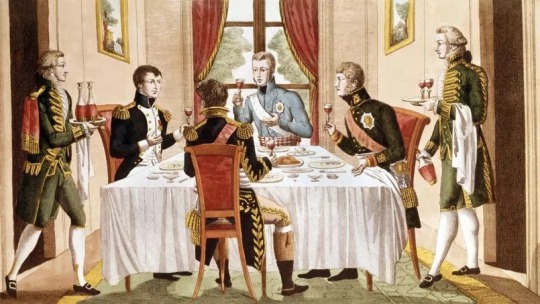
No doubt my French neighbour the retired army general and I will continue to stubbornly argue our differing viewpoints until the wine bottle empties. But we both agree that we would enjoy having dinner with Napoleon and talk about his military campaigns. I admire Napoleon a little more having read more and for living in France. He’d be a very amusing and stimulating companion.
In many ways, he was also an enlightened and intelligent ruler. His Code Napoleon is an extremely enlightened law code. At the same time this is a man who had a very, very low threshold for boredom. I think he was addicted to war.
General Robert E. Lee, at Fredericksburg said, “It is well that war is so dreadful, otherwise we would grow too fond of it.”
Napoleon would never have agreed with that. War was his drug. There’s no evidence that Wellington enjoyed war. He said after Waterloo, and I believe him, “I pray to God that I have fought my last battle.” He spent much of the battle saying to the men, “If you survive, if you just stand there and repel the French, I’ll guarantee you a generation of peace.” He thought the point of war was peace. And he sure gave not just Britain but also an entire European continent some respite from the spilling of blood on a battlefield.
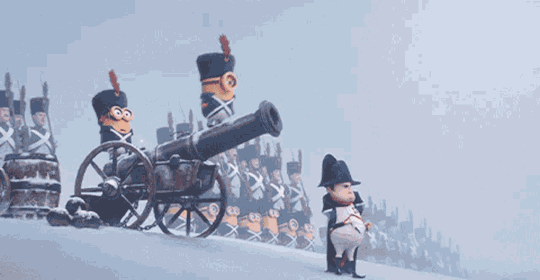
Thanks for your question.
#question#ask#waterloo#battle#battle of waterloo#napoleon#wellington#history#britain#france#prussia#austria#german#europe#military#british army#soldier
89 notes
·
View notes